Three
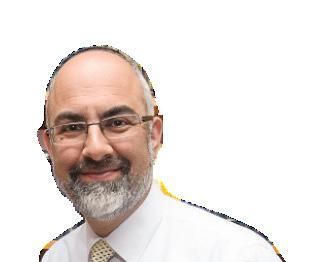
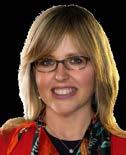

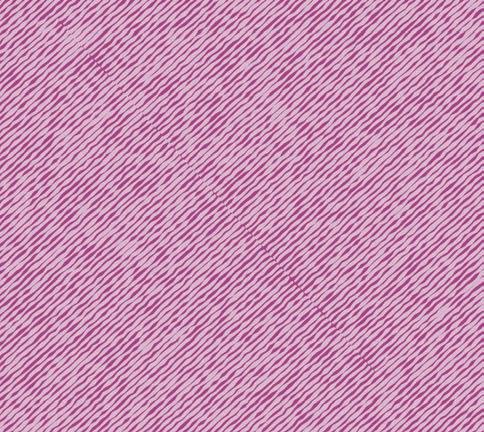
ISSUE 1513 APR 29TH '23 ג"פשת רייא 'ח PARSHAT ACHAREI MOT - KEDOSHIM ה"ב םישודק - תומ ירחא OU ISRAEL 02-560-9100 | TorahTidbits.com | ADVERTISING 02- 560-9125 YERUSHALAYIM IN/OUT TIMES FOR SHABBAT PARSHAT ACHAREI MOT - KEDOSHIM CANDLES 6:41PM • EARLIEST 5:53PM • HAVDALA 7:57PM • RABBEINU TAM 8:35PM
of Sensitivity
Mitzvot
Rabbi Anthony Manning
Israel
Faculty, OU
Co-Director Midreshet Tehillah
Haftorah Insights
Rebbetzin Dr. Adina Shmidman
The Orthodox Union
Founding Director Of
Women’s Initiative
גכ:טי ארקיו לכאמ ץע־לכ םתעטנו ץראה־לא ואבת־יכו
page 48
04Dear Torah Tidbits Family
Rabbi Avi Berman
10Aliya By Aliya Sedra Summary
Rabbi Reuven Tradburks
16It’s All Commentary
Rabbi Dr. Tzvi Hersh Weinreb
20The Courage to Admit Mistakes
Rabbi Lord Jonathan Sacks zt"l
26Probing The Prophets
Rabbi Nachman Winkler
28Learning Life Lessons from Leket
Rabbi Shalom Rosner
Rebbetzin Shira Smiles
40Simchat Shmuel
Rabbi Sam Shor
42Three Mitzvot of Sensitivity

Rabbi Anthony Manning
44The 3rd Kiddush Hashem
Rabbi Moshe Taragin
48Haftorah Insights
Rebbetzin Dr. Adina Shmidman
52Correcting a Ba’al Korei
Rabbi Daniel Mann
56The Y- Files Weekly Comic
Netanel Epstein
58OU-JLIC Tzvi Silver
60Torah 4 Teens By Teens
Shimmy Goldsmith // Raphael Roshwalb
2 TORAH TIDBITS 1513 / ACHAREI MOT - KEDOSHIM
week's
This
Torah Tidbits cover image!
Photo by Julian Alper
I made aliyah from Manchester to Teveria in 2014
I photographed this image which captures a blossoming fruit tree in the Golan.
Table of Contents
30Rewarding Reward
32OU Israel Schedule 38Getting There
Rabbi Judah Mischel
Kiddush Levana - Iyar 7 Days After Molad 7 Iyar/ Thurs. night April 27 Last Opportunity to Say Kiddush Levana until 14 Iyar/ Thurs. night May 4 , all night
AND HAVDALA TIMES
OTHER Z'MANIM
JERUSALEM
Ranges 11 ays Wed - Shabbat
April 26 - May 6 / 5 - 15 Iyar
Earliest Tallit and Tefillin 5:02 - 4:50
Sunrise 5:56 - 5:46
Sof Zman Kriat Shema 9:15 - 9:10

Magen Avraham 8:36 - 8:30
Sof Zman Tefila 10:22 - 10:18
(According to the Gra and Baal HaTanya)
Chatzot (Halachic Noon) 12:35 - 12:34
Mincha Gedola (Earliest Mincha) 1:09 - 1:08
Plag Mincha
5:52 - 5:57
Sunset (Including Elevation) 7:15 - 7:22
Seymour J. Abrams • Orthodox Union Jerusalem World Center • Avrom Silver Jerusalem College for Adults • Wolinetz Family Shul • Makom BaLev • Birthright • Yachad • NCSY in Israel • JLIC in Israel • Pearl & Harold M. Jacobs ZULA Outreach Center • The Jack Gindi Oraita Program • OU Israel Kashrut
STUART HERSHKOWITZ, PRESIDENT OU ISRAEL
Zvi Sand / Yitzchak Fund: Former Presidents, OU Israel

| Rabbi Emanuel Quint z”l, Senior Vice President | Prof. Meni Koslowsky, Vice President
VAAD MEMBERS:
Michael Elman | Yonatan Frankel | Yitchak Fund | Daniella Hellerstein | Stuart Hershkowitz | Jeremy Lustman | Meir Raskas | Atara Reichel | Zvi Sand | Norman Schmutter | Mark Schneider | Esther Williams
RABBI AVI BERMAN, EXECUTIVE DIRECTOR, OU ISRAEL
TImes According to MyZmanim (20 min. before sundown in most cities, 40 min. in Yerushalyim and Petach Tikva, 30 min. in Tzfat/Haifa)
OU Kashrut NCSY Jewish Action JLIC NJCD / Yachad / Our Way OU West Coast OU Press Synagogue/Community Services OU Advocacy OU Israel
MITCHEL R. AEDER, PRESIDENT OF THE ORTHODOX UNION Yehuda Neuberger, Chairman of the Board, Orthodox Union | Dr. Josh Penn, OU Kashrus Commission

RABBI MOSHE HAUER, EXECUTIVE VICE PRESIDENT | RABBI JOSHUA M. JOSEPH, ED.D. EXECUTIVE VICE PRESIDENT & CHIEF OPERATING OFFICER
Rabbi Dr. Tzvi Hersh Weinreb, Exec. V.P. Emeritus
OU KOSHER: Rabbi Menachem Genack, CEO/Rabbinic Administrator OU Kosher | Rabbi Moshe Elefant, COO/Executive Rabbinic Coordinator ISRAEL: Rabbi Yissachar Dov Krakowski, Rabbinic Administrator | Rabbi Ezra Friedman, The Gustave and Carol Jacobs Center for Kashrut Education/ Deputy Rabbinic Administrator
Headquarters: 40 Rector St. 4th floor, New York, NY 10006 212-563-4000 website: www.ou.org
Editor Emeritus: Phil Chernofsky
Editor: Rabbi Aaron Goldscheider | aarong@ouisrael.org
Advertising: Ita Rochel | 02-5609125 or ttads@ouisrael.org
Website: www.torahtidbits.com
Not getting enough TTs? Too many? None at all?
Contact our DISTRIBUTION 050-577-2111 • ttdist@ouisrael.org
David Katz, CFO, OU Israel | Chaim Pelzner, Director of Programs, OU Israel | Rabbi Sam Shor, Director of Programs, OU Israel Center Rabbi Sholom Gold, Dean, Avrom Silver Jerusalem College for Adults
22 Keren HaYesod <> POB 1441 <> Jerusalem
9101032
phone: (02) 560 9100 | fax: (02) 561-7432
email: office@ouisrael.org
website: www.ouisrael.org
Founders and initial benefactors of the OU Israel
Center: George and Ilse Falk a"h
Torah Tidbits and many of the projects of OU Israel are assisted by grants from THE JERUSALEM MUNICIPALITY
OU Israel, Torah Tidbits does not endorse the political or halachic positions of its editor, columnists or advertisers, nor guarantee the quality of advertised services or products. Nor do we endorse the kashrut of hotels, restaurants, caterers or food products that are advertised in TT (except, of course, those under OU-Israel hashgacha). Any "promises" made in ads are the sole responsibility of the advertisers and not that of OU Israel, the OU Israel Center , Torah Tidbits.
OU ISRAEL CENTER 3
CANDLE LIGHTING
EMOR HAVDALA ACHAREI MOT - KEDOSHIM EARLY CANDLES Havdala Early Candles 7:57 Yerushalayim / Maale Adumim 5:53 6:41 8:02 5:57 6:46 8:04 5:59 7:03 7:59 Aza area (Netivot, S’derot, Et al) 5:56 6:58 8:03 5:58 7:05 7:57 Beit Shemesh / RBS 5:54 7:00 8:02 5:57 7:01 7:57 Gush Etzion 5:54 6:57 8:04 5:59 7:03 7:59 Raanana/ Tel Mond/ Herzliya/ K. Saba 5:55 6:58 8:03 5:58 7:02 7:58 Modi’in / Chashmona’im 5:54 6:57 8:05 5:59 7:04 7:59 Netanya 5:56 6:59 8:03 5:58 7:02 7:57 Be’er Sheva 5:55 6:57 8:04 5:59 7:03 7:58 Rehovot 5:55 6:58 8:04 5:59 6:46 7:58 Petach Tikva 5:55 6:41 8:04 5:58 7:02 7:58 Ginot Shomron 5:54 6:57 8:06 6:00 6:54 8:00 Haifa / Zichron 5:56 6:49 8:02 5:57 7:01 7:57 Gush Shiloh 5:54 6:56 8:05 5:59 7:03 7:59 Tel Aviv / Giv’at Shmuel 5:56 6:58 8:03 5:57 7:06 7:57 Giv’at Ze’ev 5:54 7:01 8:02 5:57 7:01 7:57 Chevron / Kiryat Arba 5:54 6:56 8:05 6:00 7:04 7:59 Ashkelon 5:56 6:59 8:04 5:59 7:03 7:58 Yad Binyamin 5:55 6:58 8:04 5:57 6:57 7:58 Tzfat / Bik’at HaYarden 5:54 6:52 8:03 5:57 7:01 7:57 Golan 5:53 6:56 Rabbeinu Tam (J'lem) - 8:35PM • next week - 8:40pm
DEAR TORAH TIDBITS FAMILY
RABBI AVI BERMAN Executive Director, OU Israel
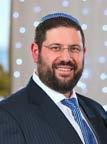
Our destiny as the Jewish people is a story of both triumph and deep loss. With Yom HaShoah, Yom HaZikaron and Yom HaAtzmaut behind us we cannot forget the importance of continued education and the need to make history relevant and meaningful for younger generations. As we are reminded every year on seder night, we have an obligation to keep our national history fresh in our minds and recognize the ways in which HaKadosh Baruch Hu rescues us from destruction.
During the seder, when we recite the Magid portion, we highlight the destiny of Am Yisrael with the recitation of “Vehi Sheamda:”
Holocaust education becomes more critical with every year that passes. In 2022, it was reported that 14,201 Holocaust survivors died. As the number of survivors dwindles, the next generation will lose the opportunity to meet those who experienced the horrors of the Holocaust, making connection to Yom HaShoah more challenging. In contrast, Yom HaZikaron and Yom HaAtzmaut are days that become more meaningful to children as their awareness of the world around them develops.
And it is this that has stood for our ancestors and for us; since it is not [only] one [person or nation] that has stood [against] us to destroy us, but rather in each generation, they stand [against] us to destroy us, but the Holy One, blessed be He, rescues us from their hand.
Although they take place in quick succession, Yom HaShoah, Yom HaZikaron and Yom HaAtzmaut each have a specific intention. I recall the passionate way in which Rav Chaim Drukman zt”l would discuss Yom HaAtzmaut. He explained that the day is not about the parade, music or barbeques. Rather, the day is about appreciating the miracle of Medinat Yisrael and showing our gratitude to Him. I heard similar sentiments growing up from Rabbi Gold, when accompanying my grandfather to shul in Har Nof. I hope those who were able to join the OU’s musical tefillah, led by Rav Shlomo Katz at Gan HaPa’amon, had a meaningful experience.
Unfortunately, I had to miss Yom HaShoah in Israel this year and it troubled me greatly. Living in Eretz Yisrael as the great grandson of an American liberator of Mauthausen, I have always felt a deep connection to Yom HaShoah. But this year, I had to travel to New York and I
4 TORAH TIDBITS 1513 / ACHAREI MOT - KEDOSHIM
דַמָע דָבְלִּב דָחֶא אֹּלֶׁש .ּונָלְו ּוניֵתֹובֲאַל הָדְמָעֶׁש איִהְו" ּוניֵלָע םיִדְמֹוע רֹודָו רֹוּד לָכְּבֶׁש אָּלֶא ,ּונֵתֹוּלַכְל ּוניֵלָע ".םָדָּיִמ ּונֵליִּצַמ אּוה ְךּורָּב ׁשֹודָּקַהְו ,ּונֵתֹולַכְל
In loving memory of Rebbetzin Josephine Reichel ה"ע on her 23nd yahrzeit
רייא ז from the Bronner and Reichel families
was concerned that I would have difficulty connecting to the day. However, what I experienced - in the middle of Time Square no less - impacted me deeply.
In 2020, Southern NCSY (OU’s Southern NCSY branch) and ShadowLight, a Toronto-based Holocaust education nonprofit, launched a cattle car exhibition. In stark contrast to Times Square’s bright lights and billboards, visitors stepped into the “Cattle Car: Stepping In and Out of Darkness” exhibit. A masterfully-produced 20-minute film was projected onto the walls of the cattle car, showcasing the horrors of the Holocaust.


As one of the most innovative Holocaust education tools, the exhibit has been quite a success over the years. This year, during my trip to the United States, I went to see the exhibit together with Ofir Sofer, Israel’s Minister of Immigration and Absorption. We arrived at the intersection of Broadway and 46th Street and found ourselves
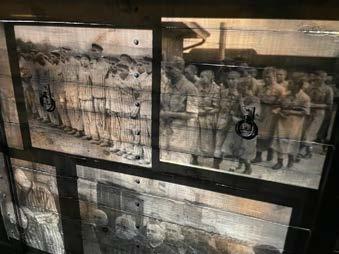
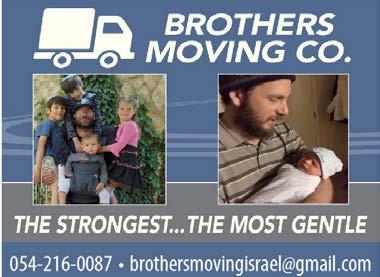
moved not only by what we saw, but seeing the reaction of others.




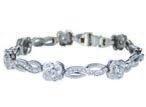

On our way to the exhibit I happened to come across my good friend Moshe Eiesnberg, who himself had just seen the exhibit.

OU ISRAEL CENTER 5
Engagement Rings ∙ Stud Earrings Pendants ∙ Tennis Bracelets 050-573-9061 jeffmor36@gmail.com www.JeffMorDiamondJewelry.com
True
wholesaler from the diamond boursa with over 25 years experience member diamond dealers club
Photos of the Holocaust projected onto the walls of the cattle car
He shared a powerful interaction that had just taken place.
An African American man approached Moshe and angrily asked why there was a cattle car replica in the middle of Times Square to commemorate the Holocaust, but no boat to commemorate the years of slavery that took place on American soil. Eager to engage in the conversation, Moshe suggested to the man that he first go into the exhibit, after which he would be happy to address his frustrations.
Although reluctant at first, the man did just that - and came out of the cattle car in tears.
After watching the video, the man shared how outraged he was by his severely limited education surrounding the Holocaust. In fact, the most he knew was that it took place in Germany and that Jews and Poles were killed. “What this video showed me in just 20 minutes is something I never learned in all my years of schooling. How can this be?”
Moshe referenced the man’s earlier question and asked what he thought about putting a boat beside the cattle car. The man responded, “No. Those two tragedies should stay separate.”

The common refrain, “Never again,” was felt deeply by those who watched the video. Especially with Minister Sofer beside us.
Minister Sofer shared that since the founding of the State of Israel, the country has become a safe haven for Jews around the world, and will always be ready to protect members of Am Yisrael no matter how far from Israel’s borders.
The “Cattle Car: Stepping In and Out of Darkness” exhibit brought Holocaust “to life” in the heart of Times Square. It has been visited by people of all backgrounds - including thousands of Jewish and non-Jewish day-school students who traveled with their schools to the corner of Broadway and 46th in order to connect to a time gone by. Although 6,000 miles away from my family and home, I too felt deeply connected to our nation’s tragic history.
When my trip came to a close, I was eager to return home and spend Yom HaZikaron and Yom HaAtzmaut with my family. Our lives here in Eretz HaKodesh are a precious gift that our grandparents could never have dreamed of. And yet, without the building of the third Beit HaMikdash, Am Yisrael continues to face tragedy. As we experience these weeks of self-reflection and improvement as we prepare for Matan Torah, I daven that we merit to see the coming of Moshaich speedily in our days.
Wishing you all an uplifting and inspiring Shabbat,
Rabbi Avi Berman Executive Director, OU Israel aberman@ouisrael.org
6 TORAH TIDBITS 1513 / ACHAREI MOT - KEDOSHIM
Dedicated L’iluy Nishmat ל"ז בקעי ךורב ר"ב ךונח 'ר Henry Schiffmiller z”l whose 22nd Yahrtzeit is on רייא ג"י המלש האופר הגלוא ןב קזייא בל
but you could possibly do them. For when it comes to communications from G-d, you are unique, irreplaceable, sui generis, one of a kind.
This exchange presents a fundamental principle of the Torah: that G-d speaks to Moshe in a way that He does not, nor will He in the future ever do again with anyone else. When Moshe says that people come to him seeking G-d, what he means is: I have access to G-d. He speaks to me. (Speaking to G-d isn’t the trick; the trick is when He answers back.) Similarly, when Moshe says that he teaches G-d’s law, what he means is that G-d communicates those laws to him and to no one else.
This could very well be the prime purpose of this Yitro story. For, in the very next story, the giving of the Torah, the very same theme of Moshe’s uniqueness as the one to whom G-d speaks is central.
3 aliya (18:24-27) Moshe heard. He chose judges, with only the most difficult cases brought to him. Moshe sent Yitro home.
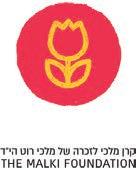
It takes an honest leader to accept suggestions to improve. Moshe displays his honesty and humility – if the suggestion is good, embrace it. Just as Yitro accepted the news of the Exodus and affirmed One G-d,




kerenmalki.org

02-567-0602

Keren Malki empowers families of children with special needs in Israel to choose home care. Donations are tax-approved in Israel, US and UK.

Honoring the memory of Malka Chana Roth ד”יה 1985-2001, killed in the Sbarro bombing.

OU ISRAEL CENTER 7
MarSea Modest Swim & Casualwear www.MarSeaModest.net (NIS) www.MarSeaModest.com ($USD) Marci Rapp 050-424-8359 THE BEST DESIGN, ENGINEERING AND INSTALLATION OF AIR davidz@AshkelonProperties.com LIVE OPPOSITE THE SEA 0544-332621 said another happy client Owning your own apartment does not just allow you freedom, but offers monetary savings, and an increase in your investment value. Anglo-populated, sunny Ashkelon is the answer! It’s very affordable – from $500,000 with just a 15% down payment, mortgages available as well as bank guarantees. Rental income often in excess of 3.5%. LIVE OPPOSITE THE SEA davidz@AshkelonProperties.com call David at 054-433-2621 www.ashkelonproperties.com and entertaain your family this summer on Ashkelon’ s lovely beaches if you owned one of our exclusive sea-view apartments Save a fortune on hotel bills MASSAGE THERAPIST & FITNESS TRAINER 052.673.3704 I www.andyhealth.com | jerusalemmyhome@hotmail.com TUVIA ANDY HAAS BALANCE and FALL-PREVENTION SPECIALIST for OLDER ADULTS Maintain Healthy Bones and Muscles Decrease Stiffness and Joint Pain Increase Strength! Stay Independent!






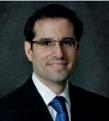


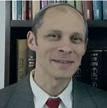

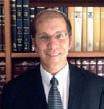
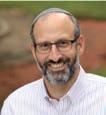




8 TORAH TIDBITS 1513 / ACHAREI MOT - KEDOSHIM Coffee & Cake will be served Beit Midrash B ker Join us for the 10th year of high level learning of Torat Eretz Israel! The shiurim take place every Thursday morning At "Nitzanim" Shul in Baka (Asher 3, Jerusalem) between 09:15 - 12:00 Women and men are welcome! a weekly learning program ד“סב Please feel free to contact us: beitmidrashboker@gmail.com 076-5300-606
Most exquisite properties in Jerusalem!!


NEW Listing! In Lev Rechavia
Residence - pool, doorman 24/7, gym, unique 180m on one level, facing the park, succah balcony, very bright DEBORAH - 054-4804767
NEW Listing! Quiet Old Katamon - new 3 rooms Gem, totally renovated, top standard, amazing views to the forest, succah balcony, parking, storage MAYA - 054-6650184
NEW Listing! FOR RENT!!

Luxurious 300m penthouse with private pool on a 200m terrace, panoramic views of Jerusalem MAYA - 054-6650184
Luxurious apartment in Talbieh
- doorman, pool, gym, 177m on one level, 32m terrace, beautiful views to the park, parking, storage
DEBORAH - 054-4804767
Luxurious garden apartment on a small lane of Old Katamon, 340m built on 2 levels, 8 rooms, separate unit with separate entrance, high ceilings, full of charm, very quiet, bright, 130m private garden, top of the line finishes, close to the park
DEBORAH - 054-4804767
On the exquisite Dubnov St. in Talbieh, private 135m cottage, totally renovated with 65m private landscaped garden, views from balconies, a real gem!
MAYA - 054-6650184
New luxurious penthouse in the best Rechavia285m on one level, high end building, beautiful views from succah terraces of 190m, 4 parking spots, storages, 4 exposures, very sunny!!
DEBORAH - 054-4804767
In a small lane in the German Colony - Unique Authentic house of 700m built on a huge plot of 1,200m - perfect for making an apartment building or a tremendous private housePotential to build up to 2,000m
DEBORAH - 054-4804767
Magnificent Authentic private house on a small dead end of Baka- 650m built on 3 levels with huge basement, 750m plot with a wonderful landscaped garden. With a thoughtful layout, an abundance of light and great bones, it is a unique property!
DEBORAH- 054-4804767
In a small lane of the German Colony, Garden apartment with private entrance, 250m with private garden, parking, high ceilings, in an authentic beautiful 3 apartments building MAYA – 054-6650184
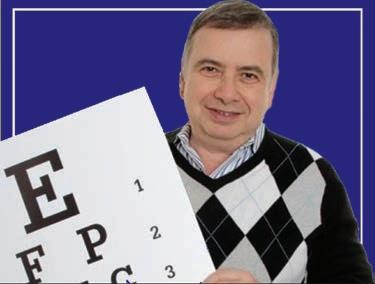
OU ISRAEL CENTER 9 Lasik Consultations - Eye Exams Eye World Be it H an at zi v –1 01 D er ec h He vr on Optometrist (Canada, USA) Ph on e: 0 2- 67 4- 38 88 Forme rl y at B el l Op ti ca l, J er us al em an d La si kM D, Tor on to D R . E ZRA F RANKEN Maccabi and Meuchedet benefits
T&T INVESTMENTS 02-6744000 0544-804767 King David St. 26 www.real-estate-jerusalem.co.il LEADING BOUTIQUE REAL ESTATE FIRM, O n M e n d e l e S t . T a l b i completely renovated, •
054-527-9356 DIRTY AIR, DAMP & MOLD GREEN TREATMENT EXPERTS - Corona Cleaning - Deodorization - Leak Detection Systems - Waterproofing - English + Hebrew Reports - Working at heights - Insured - Quality House Painting QUICK ESTIMATE/FREE ADVICE :) 058-444-1270
KI TEITZEII
ACHAREI MOT KEDOSHIM
Rabbi Reuven Tradburks Director of RCA Israel Region
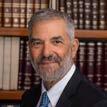
1st aliya (Vayikra 16:1-24)
Aharon is instructed to enter the Holy of Holies only through an elaborate process of offerings. He is to bring a private sin offering. And a communal sin offering of 2 identical goats, one as an offering, one sent to the wilderness, determined by lottery. The blood of both his offering and the communal shall be brought into the Holy of Holies, accompanied by incense. The smoke of the incense fills the Holy of Holies. The (scape) goat is sent to the wilderness. The people gain kapara, atonement.
Entry to the Holy of Holies requires an elaborate ceremony of unique offerings; including the scapegoat ceremony and the incense offered in the Holy of Holies. And it is all performed by the Kohen Gadol.
This continues the powerful and crucial theme of the entire section following Mount Sinai. In G-d’s reach for man, his love of man, He has created a place of rendezvous; the Mishkan. However, it is rendezvous with care, with reservation,
with humility. The building design is with great detail. The offerings are with great detail; when they are brought, how they are brought, the Kohanim’s role in bringing them. G-d says: You may approach Me, I want you to approach Me, but with care. Here, He invites man to rendezvous in the Holy of Holies – the inner, intimate chamber, with the Aron and the tablets, covered by angels. This intimate invitation requires a very elaborate procedure; unique offerings like the scapegoat and the incense, sin offerings, olah offerings. The closer, the more intimate; but also, the more care and preparation required.
This is a powerful and crucial theme: G-d invites man, wants man, but demands man’s understanding of his inadequacy and his human foibles (sin offerings). And while man is invited to the Holy of Holies it is with great limitation. Not every person, not every day; it is one person, the Kohen Gadol, only one time a year. G-d remains mysterious, ineffable, infinite, unknowable. This is the delicate balance the Torah is creating; G-d wants man. Man is noble, the invitee of G-d Himself. But with enormous deference, profound recognition of man’s limited station. Nobility and humility; the majesty in being the invitee of G-d, hand in hand with the reality of our woeful inadequacy.
2nd aliya (16:25-17:7) This entire ceremony is done once a year on Yom Kippur, to gain atonement and purity. Tell the entire people: all sacrifices are to be brought to the Mikdash. The Kohen is to offer them, so they are pleasing. We are to no longer offer sacrifices to spirits.
10 TORAH TIDBITS 1513 / ACHAREI MOT - KEDOSHIM
ALIYA-BY-ALIYA המלש האופר הנאיר תב הרוא
SEDRA SUMMARY
Only at the end of the entire description of how one is to enter the Holy of Holies does the Torah tell us that this is to be done on Yom Kippur. As if to say: the goal of Yom Kippur is to enter the Holy of Holies. It is through man’s most intimate approach to G-d that he gains atonement and purity.
and our next step will be to plant a fruit tree. I never thought of myself as being the agricultural type, but the feeling of settling and planting a portion of Eretz Yisrael, has been truly euphoric. Iy”H, when we plant our tree, and eat the fruits that will grow one day, I think we will be able to truly appreciate that unique Kedusha found in the fruit of Eretz Yisrael!
To conclude, when you buy your Tu B'shvat fruit this year, don’t search for those dried apricots and banana chips imported from Turkey. Rather, head over to the fresh produce and buy yourself some nice juicy Kedusha-filled Jaffa oranges and thank Hashem for bringing you to this land in order to be able to הבוטמ עבשלו הירפמ לוכאל, imbibing that Kedusha in every bite that you take!!
3rd aliya (17:8-8:21) Blood is not to be consumed, for life is in the blood. I have given it to you to use for atonement on the altar, not to consume. The blood of an undomesticated animal or bird that is killed for consumption, that blood is to be covered with earth. Do not do what the Egyptians or Canaanites do. Do My commands; and live. Sexual relations with relatives are forbidden: including spouses of parents, half siblings, grandchildren, step-siblings, aunts, in-laws. In addition, marrying 2 women who are closely related. Or a married woman.
The subject of entry into the Mikdash gives way now to the listing of forbidden relationships. These laws are entirely unrelated to the Mikdash. The book of Vayikra is called Torat Kohanim because of the many laws related to the Mikdash – Leviticus in English for the same reason. But, a more accurate name would be Sefer Kedusha; the book of holiness. And in this the Torah presents a radical notion; that holiness inheres not only in the holy place, the Mikdash. And not only in the
Mazal Tov to Arlene Fox and Family on the engagement of her granddaughter
Tamar to Ariel
APTS IN A NEW BUILDING FOR SALE AND RENT DOWNTOWN
FOR SALE
AGRIPAS ST 8, CLOSE TO KING GEORGE
5 RMS, 133 M, 7TH FL WITH SHABBAT ELEVATOR,
2.5 BATHS, SMALL SUKKAH BALCONY BRIGHT, SPACIOUS, UNDERFLOOR HEATING, A/C
4.7 MILLION NIS FOR A QUICK DEAL!
FOR RENT

2-ROOM APT, 60 SQM - 5700 NIS
3-ROOM APT, 76 SQM, -7300 NIS BEAUTIFUL, NEW, BRIGHT UNDERFLOOR HEATING, A/C, 2 ELEVATORS
Ilana Nelson 054.5341403
www.integrityrealestate.co.il
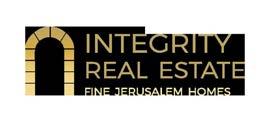

OU ISRAEL CENTER 11 OU ISRAEL CENTER 75
holy time of Shabbat and holidays. But in the holiness of our relationships. Holiness is the central theme of Vayikra. Played out in the Mikdash, in offerings, in Tuma and its restrictions of entry into the holy place. But as well in the holiness of private life. Holiness is both public and private, ritual and personal, related to the Holy One and to our fellow man.
4th aliya (8:22-19:14) A man shall not lie with a man. Sexual relations with an animal are forbidden. These things (all the above) defile the Land: it will spit you out. (Parshat Kedoshim) Be Holy, as I, G-d, your G-d is holy. Revere parents, keep Shabbat. Do not turn to idols or make graven gods. A shlamim offering may only be eaten for 2 days. Help the poor and the stranger when harvesting a field by leaving dropped or

forgotten produce or grapes. Don’t steal, lie or swear falsely. Don’t cheat; or tarry paying wages til the morning. Don’t curse the deaf, trip up the blind.
This aliya begins Parshat Kedoshim, the best parsha in the Torah. Or at least Rashi says so on the first verse: most topics of the Torah are contained here. There are 51 mitzvot in 64 verses. We have left the topic of holiness of the Mikdash and focus on holiness in our behavior. These are the greatest themes of ethical behavior; helping the poor with dignity, honesty, care for employees, care for the deaf and blind. In just these few verses, our every moment of human interaction becomes meaningful; every step we take and thought we think needs vigilance. To be true. And kind. And give dignity to others. This parsha is the fullest expression of how holiness need in-

12 TORAH TIDBITS 1513 / ACHAREI MOT - KEDOSHIM
be in loving memory and נ"על our dear parents whose yahrtzeits are in Kislev
been memorialized in a popular song, "An eternal people does not fear the long and arduous path."
Doris Weinberger a"h

here in our everyday treatment of others.
ולסכ 'ד -ה"ע המלש לאקזחי תב האל הרובד

Max Weinberger z”l
ולסכ ז"כ -ל"ז בד ןב ךלמילא
Greatly missed by their children, grandchildren and great grandchildren
Rav Aryeh and Dvora Weinberger
Bernie and Leah Weinberger
Menachem and Hannah Katten
Patience is necessary for those who follow Isaac's way. But a wise woman taught us that patience is but another name for hope. That woman was Jane Austen, who put these words into the mouth of one of the characters in her great novel, Sense and Sensibility: "Know your own happiness. You want nothing but patience—or give it a more fascinating name: call it hope."
In observance of the Shloshim of our friend
Yehuda Leib Berren z"l
5th aliya (19:15-32) Do not pervert justice by favoring either poor or powerful. Don’t spread gossip, nor stand by your brother’s blood. Don’t hate. Don’t take revenge; love your neighbor as yourself. Do not interbreed animal, seeds, or wear wool and linen. In the Land, fruit is forbidden for the first 3 years of growth, 4th year holy, 5th year permissible. Do not use divination. Nor round the corners of your face or use a straight razor on your beard. Nor tattoo. Nor seek sorcery. Rise before the aged, glorify the wizened.
Rav Menachem Weinberg will give a shiur in his memory "Heroic Joy"
Monday evening, 23 November/ 8 Kislev
7:30pm
Zoom Meeting: 853 8980 1519
Password: Yehuda


The mention of justice is a foil: in court, we pursue justice. But not on the streets. It is not our place to be judges; judges cannot favor one person over another. But we certainly can. And must. We must favor and help the victim. And revenge; we are not judges to mete out just revenge. If he didn’t lend you, forget about it - you still should do the right thing and lend to him.
And 2 of the best verses of the Torah: love your neighbor as yourself. And rise for the aged. As Rabbi Sacks says: it is easy to love mankind, quite a bit harder to love the person next door. We see the warts, as they see ours. But rise above it. All people have goodness. Rise for the aged; perhaps for the wisdom that life itself brings. Quite a contrast to the glorification of youth of our times.
6th aliya (19:33-20:7) Love the convert. Employ accurate weights and measures. One
OU ISRAEL CENTER 13
OU ISRAEL CENTER 15
052-385-9944 • 054-499-9043
SEALING SERVICES
ARNONA/TALPIOTBeit Hanatziv, Derech Hevron 101A RAMAT ESHKOL Shopping Center (Above Waffle Bar) (02) 674-3888 guarantee • Contact lenses • Beautiful frames It’s not only how you LOOK It’s how you SEE המלש האופר אנדהאב לרפ ןב עשוהי םהרבא
SEALING SERVICES AND ROOFING shmuelnathan4@gmail.com
who gives their child to Molech shall be put to death. And if you don’t do it, I will. The one who turns and follows sorcery, I will deal with them. Be holy; for I am Holy.
The convert may feel out of place, different, self conscious, without family, not part of the crowd. Be extra sensitive to those who feel left out.
Accurate weights and measures would seem obvious. But the Torah is emphasizing that even when you can get away with it, don’t. Like cursing the deaf. Who will ever know?
7th aliya (20:8-27) The following receive the death penalty: cursing parents, the long list of forbidden sexual relationships listed above. Observing these laws and not those of the nations will prevent the Land from spitting you out, as it has done to those nations. Since I have distinguished you, it is you who shall possess the Land, the land flowing with milk and honey. And you shall distinguish between animals to be eaten and those not. Be holy to Me and I will distinguish you to be My people.
The Jewish idea of ethical monotheism is on full display in Kedoshim. Holiness wan-
A SHORT VORT
ders seamlessly in the parsha from taking care of the poor, to laws of sacrifices, to honesty, to sexual prohibitions, to loving your neighbor, not hating; all under the rubric of holiness. Finding a pattern to the list of mitzvot in the parsha is challenging. But that is the point. There is no pattern. Because holiness wanders throughout our life, touching on the myriad pursuits of our day-to-day existence. It’s all holy.
The parsha concludes: We are to be holy so that the Land not spit us out. These words must give us pause, those of us privileged to walk the streets of our Land. The Land could spit us out. All these mitzvot are not simply our own personal religious life. We, we who live in our Land, we particularly need to be extra vigilant in all these holy things, ritual, interpersonal, speech, care, love; for our success in this Land rests upon it.
HAFTORAH AMOS 9:7-15
This week's haftorah foretells the exiles and punishments that will befall the Jews because of their behavior— behavior that this week's Torah reading proscribes.
BY RABBI CHANOCH YERES
(ד:חי) םהב תכלל ורמשת יתקח תאו ושעת יטפשמ תא
“My ordinances you shall do and my statutes you shall keep, to walk therein.” (18:4)
Rabbi Moshe Schreiber (The Chatam Sofer 1762-1839) asks why the Pasuk needs to add the words “to walk therein.”? Would it not be enough to warn us simply to do and keep my ordinances and statutes? What is the idea of keep walking with it?
The Chatam Sofer answers that it is not sufficient for a person to learn Torah and observe its laws in a mechanical fashion, allowing them to be fulfilled in a routine and habitual way. Rather, the Pasuk instructs us to “walk with the Torah” meaning renew your enthusiasm and reawaken your motivation every day. We must show commitment to always strive to elevate ourselves to a more meaningful level through practicing the Torah.
Shabbat Shalom
14 TORAH TIDBITS 1513 / ACHAREI MOT - KEDOSHIM
R av, Beit Knesset Beit Yisrael, Yemin Moshe
The prophet Amos delivers Hashem's message, reminding the people of Hashem's kindness to them — taking them out of Egypt and singling them out as His chosen nation. Nevertheless, because of their misdeeds, Hashem will destroy the Northern Kingdom of Israel; but will not completely destroy the Jewish people. The Jews will be scattered amongst the nations, but eventually they will return to their Land — on the day of the redemption. Hashem will then reinstall the House of David to its former glory and there shall be peace and abundance upon the Land.
ACHAREI MOTKEDOSHIM STATS
EXCITING PROJECTS, BUILDINGS
Presales and immediate occupancy
BUILDINGS AND VILLAS
In the most desirable neighborhoods
SHAAREI CHESSED / RECHAVIA
Renovated 110 sqm 3 bdrms, 1st floor, succah.
Beautiful 3 bdrm apt + 50 sqm succah balcony, shabbat elevator, parking and view.
ALIYA-BY-ALIYA
SEDRA SUMMARY
Luxurious duplex, 200 sqm, renovated, 4 bedrooms + office, underfloor heating, succah balcony, parking, storage.
New 228 sqm duplex penthouse, 30 sqm succah balcony, shabbat elevator, parking and a view.
[P> X:Y (Z)] and [S> X:Y (Z)] indicate start of a parsha p’tucha or s’tuma. X:Y is Perek:Pasuk of the Parsha’s beginning;
TALBIEH all on private land
Spacious 2 bdrms, 114 sqm, succah balcony, shabbat elevator, storage room, parking, built on a high standard
(Z) is the number of p’sukim in the parsha.
Renovated 3 bdrm, 130 sqm, succah, elevator, storage room, parking!
4 bedrooms, renovated, NIS 7,500,000
Magnificent 250 sqm + 200 sqm registered garden

BAKA
Numbers in [square brackets] are the Mitzva-count of Sefer HaChinuch AND Rambam’s Sefer HaMitzvot. A=ASEI; L=LAV (prohibition). X:Y is the perek & pasuk from which the mitzva comes.
Spacious 2 bdrms, 85 sqm, succah, parking
TALPIOT
4 rms, balcony, elevator, machsan, parking, view.
KOHEN FIRST ALIYA
NACHLAOT
17+7=24 P'SUKIM - 16:1-24
Renovated 2 rms, private entrance, storage room, NIS 2,350,000
HAR NOF
Central! 3 bedrooms, renovated, storage room!
Central! 120 sqm + rental unit, lovely patio!
Price reduced! 140 sqm apartment facing an open view! large storage room.
JERUSALEM SALES FOR SALE - NEW LISTINGS FOR RENT
Shlav B - 174 sqm, renovated, 5 bedroooms, 2 succah balconies, magnificent view
RECHAVIA
2 bedrooms, unfurnished, immediate NIS 6300
FOR MANY MORE PROPERTIES:
02-651-4030
[P> 16:1 (34)] The first part of the sedra deals with the Yom Kippur service in the Beit HaMikdash - Seder HaAvoda. An emotional element is introduced when the Torah tells us that G-d gave these commands "after the deaths of Aharon's two sons". We cannot help but be struck by the combination of the Kohen Gadol performing the loftiest of spiritual tasks with the background of his personal grief. These feelings are especially powerful as we hear this reading on Yom Kippur morning.
OU ISRAEL CENTER 15
Eiferman Properties Ltd. www.eifermanrealty.com
Before the Service is described, kohanim
MITZVOT A&K KED ACH - 30th 29th of 54 sedras in Torah - 7th6th of 10 in Vayikra 263109154 Lines - 49th 44th Rank (Among The 54) 19 4 15 Parshiyot 633 P’tuchot 13 1 12 S’tumot 1446480 P’sukim - 49/9 45/6 Rank (Torah/Vayikra) 2038 868 1170 Words - 49/9 43/6 Rank (Torah/Vayikra) 7523 3229 4294 Letters - 49/9 45/6 Rank (Torah/Vayikra) A&K KED ACH 15+64 13+38 2+26 Mitzvot (pos/prohib)
BY RABBI DR. TZVI HERSH WEINREB OU Executive Vice President, Emeritus
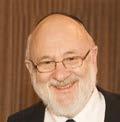
It’s All Commentary
I am proud of my large library of Jewish books.
My collection, which my wife half-jokingly refers to as my addiction, began on my 11th birthday with a gift from my maternal grandparents, may they rest in peace. They bought me the then recently published Shulzinger edition of the Five Books of Moses surrounded by numerous traditional commentaries. Those volumes became the cornerstone of my personal library of many hundreds of Judaic works on the Bible, the Talmud, philosophy, history, and codes of law.
These books line the walls of my private study from floor to ceiling.
Over the years, I have had many visitors who were struck by the overwhelming number of books and who reacted with awe and curiosity. Some, particularly
non-Jews, would ask, “Have you read all of these?” When I confessed that I hadn’t read more than very few of them, they often proceeded with yet another question:
“What are they all about? Why are so many books necessary just to explain one religion?”
They could not fathom why so much commentary was written on just a few basic biblical texts.
Often, as I responded to their inquiries, I found myself resorting to an old story of one of our greatest sages, Hillel. To most of you, this story is probably well-known, perhaps even trite. But for many of my visitors, the story was novel, instructive, and almost revelatory.
In this story, Hillel, known for his scholarship and commitment to Torah study but particularly famous for his patience, is provocatively challenged by a heathen who demands to be taught the entire Torah while standing on one foot. Hillel accepts the challenge and says, “What is hateful to you do not do unto others. That is the entire Torah, the rest is but commentary. Now go out and study the commentary.”
I would then explain to my inquisitive visitors that Hillel’s remark was based upon a verse in this week’s double Torah portion, Acharei Mot-Kedoshim. There, in Leviticus 19:18, we read, “...and thou shalt love thy neighbor as thyself.”
Now, I would continue, loving one’s
16 TORAH TIDBITS 1513 / ACHAREI MOT - KEDOSHIM THE PERSON IN THE PARSHA
May the Torah learned in this Torah Tidbits be תמשנ יוליעל ה"ע אמילב לדניירקו המלש תב לחר לדנייש רייא 'ג ע"בלנ In loving memory of Lilly Manheim a"h on her 7th yahrtzeit 3 Iyar 5783
neighbor as oneself is no easy task. We are likely to have numerous and diverse neighbors in the course of a lifetime, and myriad circumstances arise which pose great barriers to our love for them. And so, Jewish scholars throughout the ages have recorded their advice, suggestions, and guidelines for just how to love one’s neighbor in every conceivable context and condition. That’s what all these books are about, and that’s why we need so many of them.
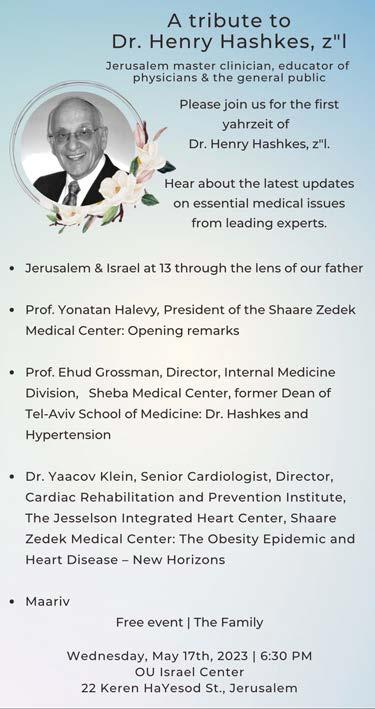




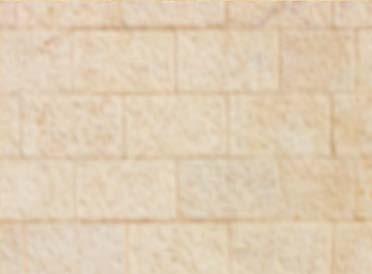

Note that Hillel himself does not choose to use the Torah’s original phrase to explain the essence of Judaism to the heathen. He
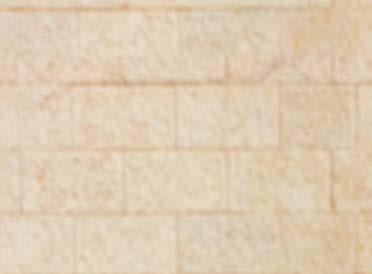


OU ISRAEL CENTER 17 Hillel -052-5955-492 M Men achem -052-5955-073 Real Estate Brokerage Property Management (Maintenance & LT rental) Project Management (Renovations & Construction) ALL YOUR UNDER ONE ROOF! ErusalEm HomEs The Mendlowitz Family business with over 40 yearsof experience in the US and Israel!
does not say, “Love your neighbor.” Rather, he says, “Do not harm your neighbor.” Perhaps this is because, as the medieval commentator Ramban suggests, loving one’s neighbor as oneself is an exaggerated expectation, just too tall an order, and the most Hillel could do was to urge the heathen to do no harm.

Whether one uses the biblical formulation commanding us to love our neighbor, or chooses Hillel’s version which asks us to refrain from harming him or her in a way in which we ourselves would not want to be harmed, the essence of our Torah is this ethical imperative. And the many hundreds of volumes in my personal library, and the hundreds of thousands of similar tomes written throughout the centuries, can all be understood as the constant and perpetual struggle of our sages to develop a “database” sufficient to enable us to realize this ethical imperative.
One such commentary deserves mention, particularly in our age and culture, which has been diagnosed as narcissistic, as overly self-loving.
This commentary takes the form of a story about a disciple of Rabbi Mendel of Kotzk who eavesdropped upon his master as the latter was reviewing this week’s Torah portion aloud. Rabbi Mendel read, “...and thou shalt love thy neighbor...as yourself??? Yes, as yourself!!!” First as a question, and then as a forceful declaration.
The disciple was puzzled by the manner in which his master read the passage. He asked the master’s chief disciple, Reb Hershel, for an explanation. This was his answer:
“The master first asked a question. Can it
be that we are asked to love our neighbor as ourselves? Are we to understand that it is permissible to love oneself? Is it not a basic teaching here in Kotzk that one dare not love oneself, lest he thereby become blind to his own faults?” In our terminology, Rabbi Mendel could not accept the slightest suggestion that narcissism was acceptable.
“Then the master realized a deeper meaning of the verse. Namely, we ought to love our neighbor to the same extent that we are critical of ourselves. The mitzvah is that we put in as much effort loving our neighbor as the effort that we should be investing in our own personal spiritual and moral perfection.”
In an age of “me first,” it is even more important that we direct our love outwards towards the other, and not inward toward ourselves. We must, at all costs, avoid self-adulation and self-worship.
That is just one small sample of the vast treasure of commentary that is in our Jewish library. No wonder that our Sages refer to the “ocean of the Talmud,” and to our Torah as deeper than the sea.
18 TORAH TIDBITS 1513 / ACHAREI MOT - KEDOSHIM


OU ISRAEL CENTER 19 Hod Denya Jerusalem Assisted Living prestigious retirement residence OCCUPANCY SOON! Program Rabbi Dr. Nachum Amsel - Hod Denya Representatives of Bank Mizrachi Tefachotoptions for mortgages, loans etc.. Yehuda Oliva, Marketing Manager - Q & A For details and registration: 02-5001177 21 Golomb St., Jerusalem | Search Hod Denya on www.hoddenya.com Rabbi Dr. Nachum Amsel 0522-52-00-31 Namsel@netvision.net.il 03.05.2023 Wednesday | 18:30 pm 22 Keren Hayesod, Jerusalem An Evening with Hod Denya at the OU Israel Center
COVENANT & CONVERSATION
May the learning of these Divrei Torah be תמשנ יוליעל
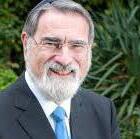
Ya'akov Zvi ben David Arieh zt"l
The Courage to Admit Mistakes
Some years ago I was visited by the then American ambassador to the Court of St James, Philip Lader. He told me of a fascinating project he and his wife had initiated in 1981. They had come to realise that many of their contemporaries would find themselves in positions of influence and power in the not-too-distant future. He thought it would be useful and creative if they were to come together for a study retreat every so often to share ideas, listen to experts and form friendships, thinking through collectively the challenges they would face in the coming years. So they created what they called Renaissance Weekends. They still happen.
The most interesting thing he told me was that they discovered that the participants, all exceptionally gifted people, found one


thing particularly difficult, namely, admitting that they made mistakes. The Laders understood that this was something important they had to learn. Leaders, above all, should be capable of acknowledging when and how they had erred, and how to put it right. They came up with a brilliant idea. They set aside a session at each Weekend for a talk given by a recognised star in some field, on the subject of “My biggest blooper.” Being English, not American, I had to ask for a translation. I discovered that a blooper is an embarrassing mistake. A gaffe. A faux pas. A bungle. A boo-boo. A fashla. A balagan. Something you shouldn’t have done and are ashamed to admit you did.
This, in essence, is what Yom Kippur is in Judaism. In Tabernacle and Temple times, it was the day when the holiest man in Israel, the High Priest, made atonement, first for his own sins, then for the sins of his “house,” then for the sins of all Israel. From the day the Temple was destroyed, we have had no High Priest nor the rites he performed, but we still have the day,
20 TORAH TIDBITS 1513 / ACHAREI MOT - KEDOSHIM
תומשנ יוליעל ה״ע זייא דוד לארשי תב הדלוגו רשא בקעי ןב סחנפ ה״ע רטרש קחצי תב הינעמו בייל הירא ןב לאירזע
Thoughts on the Weekly Parsha from RABBI LORD JONATHAN SACKS ZT"L
Former Chief Rabbi of the United Hebrew Congregations of the Commonwealth
TRANSFER YOUR OLD FILM/VIDEO's (All formats) In Quality to Digital Preserve Family History from Fading Michael 052.286.8626 Photography with feeling Facebook.com/L'Dorot Photography
HaRav
and the ability to confess and pray for forgiveness. It is so much easier to admit your sins, failings, and mistakes when other people are doing likewise. If a High Priest, or the other members of our congregation, can admit to sins, so can we.
I have argued elsewhere (in the Introduction to the Koren Yom Kippur Machzor) that the move from the first Yom Kippur to the second was one of the great transitions in Jewish spirituality. The first Yom Kippur was the culmination of Moses’ efforts to secure forgiveness for the people after the sin of the Golden Calf (Ex. 32-34). The process, which began on 17th Tammuz, ended on the 10th of Tishrei – the day that later became Yom Kippur. That was the day when Moses descended the mountain with the second set of tablets, the visible sign that God had reaffirmed his covenant with the people. The second Yom Kippur, one year later, initiated the series of rites set out in this week’s parsha (Lev. 16), conducted in the Mishkan by Aaron in his role as High priest.

The differences between the two were immense. Moses acted as a prophet. Aaron functioned as a priest. Moses was following his heart and mind, improvising in response to God’s response to his words.
Jerusalem Real Estate is My Business
Eta: 054-723-3863 Rachel: 052-546-6425
Amazing stand alone homes in OLD KATAMON,


Fantastic opportunity to buy 170 sqm on one floor, with sukka terrace, Shabbat elevator, brand new apt ready in 2 years. Only 6,500,000 NIS.
In GERMAN COLONY, 140 sqm on one floor, 2nd floor walk up, completely renovated with 4 bedrooms and 2 full bathrooms. Large sukka terrace. 7,100,000 NIS
In BAKA, most sought out location. New apartment duplex of 236 sqm plus 81 sqm of outdoor space. Plus parking. For more info call Eta: 0547233863
In the heart of BAKA enclosed in a magical courtyard:
3 bedrooms 2 full bathrooms one flight up.
Beautiful spacious sukka terrace facing open gardens.
Completely renovated with architectual design & high level finishes.

6,250,000 NIS
Eta Morris Realty, Ltd.

etamorrisrealestate@gmail.com

Eta: 054-723-3863 · Rachel: 052-546-6425
etamorrisrealty.co.il
OU ISRAEL CENTER 21
TALBIYA, BAKA, GERMAN COLONY
Aaron was following a precisely choreographed ritual, every detail of which was set out in advance. Moses’ encounter was ad hoc, a unique, unrepeatable drama between heaven and earth. Aaron’s was the opposite. The rules he was following never changed throughout the generations, so long as the Temple stood.
Moses’ prayers on behalf of the people were full of audacity, what the Sages called chutzpah kelapei shemaya, “audacity toward heaven,” reaching a climax in the astonishing words, “Now, please forgive their sin – but if not, then blot me out of the book You have written.” (Ex. 32:32). Aaron’s behaviour by contrast was marked by obedience, humility, and confession. There were purification rituals, sin offerings and atonements, for his own sins and those of his “house” as well as those of the people.
The move from Yom Kippur 1 to Yom Kippur 2 was a classic instance of what Max Weber called the “routinization of charisma”, that is, taking a unique moment and translating it into ritual, turning a “peak experience” into a regular part of life. Few moments in the Torah rival in intensity the dialogue between Moses and God after the Golden Calf. But the question thereafter was: how could we achieve forgiveness – we who no longer have a Moses, or prophets, or direct access to God? Great moments change history. But what changes us is the unspectacular habit of doing certain acts again and again until they reconfigure the brain and change our habits of the heart. We are shaped by the rituals we repeatedly perform.
Besides which, Moses’ intercession
with God did not, in and of itself, induce a penitential mood among the people. Yes, he performed a series of dramatic acts to demonstrate to the people their guilt. But we have no evidence that they internalised it. Aaron’s acts were different. They involved confession, atonement and a search for spiritual purification. They involved a candid acknowledgment of the sins and failures of the people, and they began with the High Priest himself.
The effect of Yom Kippur – extended into the prayers of much of the rest of the year by way of tachanun (supplicatory prayers), vidui (confession), and selichot (prayers for forgiveness) – was to create a culture in which people are not ashamed or embarrassed to say, “I got it wrong, I sinned, I made mistakes.” That is what we do in the litany of wrongs we enumerate on Yom Kippur in two alphabetical lists, one beginning Ashamnu, bagadnu, the other beginning Al cheit shechatanu.
As Philip Lader discovered, the capacity to admit mistakes is anything but widespread. We rationalise. We justify. We deny. We blame others. There have been several powerful books on the subject in recent years, among them Matthew Syed, Black Box Thinking: The Surprising Truth About Success (and Why Some People Never Learn from Their Mistakes); Kathryn Schulz, Being Wrong: Adventures in the Margins of Error, and Carol Tavris and Elliot Aronson, Mistakes Were Made, But Not By Me.
Politicians find it hard to admit mistakes. So do doctors: preventable medical error causes more than 400,000 deaths every
22 TORAH TIDBITS 1513 / ACHAREI MOT - KEDOSHIM
Rental

• 4 rooms, 115m, in Pinsker building. fully renovated, closets, electrical appliances, high floor, succa, magnificent views, immediate
• Wolfson Towers - 5 rooms, 135m, facing views, high floor, totally renovated, Shabbat elevator
• San Simon, penthouse, 300m, duplex, 5 bedroom. Magnificent views, parking, Shabbat elevator
• Katamon - 4 room garden apt. renovated, parking, close to shteiblach, shopping
Author of The 18% Solution –Lose 18% of Your weight in 18 Weeks

| www.shneller.co.il
Shiffy@shneller
Weight loss Consultation +972 53 472 2159

125th YEAR ANNIVERSARY
PROFESSIONAL REFINISHING SERVICES
REFINISHING: FOR THAT BRAND NEW LOOK
FILL HOLES & GOUGES. SMOOTH OUT SCRATCHES & REPLACE MISSING WOOD REMOVE WHITE MARKS DUE TO BURNS OR WATER DAMAGE


SHMUTZ REMOVAL- DIRT, GRIME & OIL ON BACKS & ARMS OF CHAIRS
REFURBISHING & TOUCH UPS OF MISSING COLOR
REPLACE MISSING OR DAMAGED VENEER
APPLY A NEW COAT OF LACQUER TO PROTECT YOUR FURNITURE

FURNITURE MARKERS AVAILABLE FOR THOSE SMALL DIY TOUCH-UPS
1898 **************** RESTORE YOUR FURNITURE TO HEALTH **************** Website: www.thefurnituredoctor.co.il Email:
23
office@thefurnituredoctor.co.il Phone: 02-999-2418 WhatsApp: 058 787 3755
Harry Weisman
Dr.
Former Assist. Clinical Professor of Medicine, UCLA School of Medicine; Div. of Endocrinology & Metabolism
• Wolfson Towers - 5 room apt. renovated, high floor, views, Shabbat elevator sale
co.il
052-2639702
year in the United States. So do bankers and economists. The financial crash of 2008 was predicted by Warren Buffett as early as 2002. It happened despite the warnings of several experts that the level of mortgage lending and the leveraging of debt was unsustainable. Tavris and Aronson tell a similar story about the police. Once they have identified a suspect, they are reluctant to admit evidence of his or her innocence. And so it goes.
The avoidance strategies are almost endless. People say, It wasn’t a mistake. Or, given the circumstances, it was the best that could have been done. Or it was a small mistake. Or it was unavoidable given what we knew at the time. Or someone else was to blame. We were given the wrong facts. We were faultily advised. So people bluff it out, or engage in denial, or see themselves as victims.
We have an almost infinite capacity for interpreting the facts to vindicate ourselves. As the Sages said in the context of the laws of purity, “No one can see his own blemishes, his own impurities.” We are our own best advocates in the court of self-esteem. Rare is the individual with the courage to say, as the High Priest did, or as King David did after the prophet Nathan confronted him with his guilt in relation to Uriah and Batsheva, chattati, “I have sinned.”
Judaism helps us admit our mistakes in three ways. First is the knowledge that God forgives. He does not ask us never to sin. He knew in advance that His gift of freedom would sometimes be misused. All he asks of us is that we acknowledge our mistakes, learn from them, confess and resolve not to do them again.
Second is Judaism’s clear separation between the sinner and the sin. We can condemn an act without losing faith in the agent.
Third is the aura Yom Kippur spreads over the rest of the year. It helps create a culture of honesty in which we are not ashamed to acknowledge the wrongs we have done. And despite the fact that, technically, Yom Kippur is focused on sins between us and God, a simple reading of the confessions in Ashamnu and Al Chet shows us that, actually, most of the sins we confess are about our dealings with other people.
What Philip Lader discovered about his high-flying contemporaries, Judaism internalised long ago. Seeing the best admit that they too make mistakes is deeply empowering for the rest of us. The first Jew to admit he made a mistake was Judah, who had wrongly accused Tamar of sexual misconduct, and then, realising he had been wrong, said, “She is more righteous than I” (Gen. 38:26).
It is surely more than mere coincidence that the name Judah comes from the same root as Vidui, “confession”. In other words, the very fact that we are called Jews – Yehudim – means that we are the people who have the courage to admit our wrongs.
Honest self-criticism is one of the unmistakable marks of spiritual greatness.
These weekly teachings from Rabbi Sacks zt”l are part of his ‘Covenant & Conversation’ series on the weekly Torah teaching. With thanks to the Schimmel Family for their generous sponsorship, dedicated in loving memory of Harry (Chaim) Schimmel. Visit www.RabbiSacks.org for more.
24 TORAH TIDBITS 1513 / ACHAREI MOT - KEDOSHIM
• Curtains & draperies
• Designer curtains
• Venetian & Woven wood blinds
• Blackout, Vertical, Roller, Roman & Pleated shades

www.ashleywilde.co.il
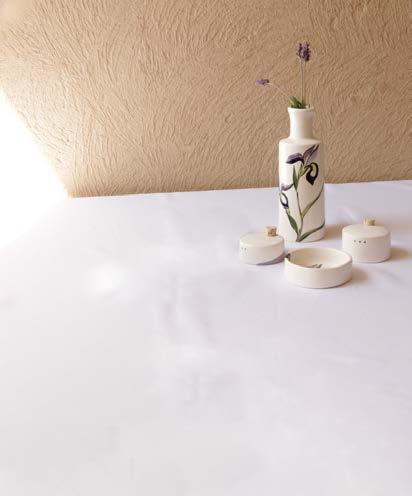

Non-profit organization in Jerusalem needs an energetic Resource Development Coordinator for fascinating and challenging work.
Start immediately. CV and letters of recommendation: admin@lifeline.org.il
The position:
•English communication and content writing.
•Maintaining CRM.
•Guiding groups and visitors through our workshops.
Requirements:

1. Academic education.
2. Native English speaker must (advantage of fluent Hebrew).

3. Relevant experience.
4. Knowledge of computer applications.
5. Organized, responsible, committed and loyal, good interpersonal skills and ability to work in a team.
OU ISRAEL CENTER 25 OU ISRAEL CENTER 59
PROBING THE PROPHETS
BY RABBI NACHMAN (NEIL) WINKLER Faculty, OU Israel Center
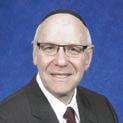
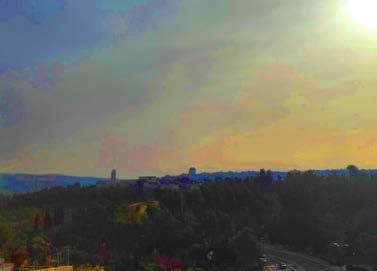
The combined parshiyot of Avharei-Mot and Kedoshim are followed next Shabbat by the sedra of Emor. It has often been pointed out that the names of these three portions can be joined to express an important concept: “Acharei Mot Kedoshim” - after the death of martyrs, “Emor” – it is proper to speak (of them). Over the recent years, that statement has become more meaningful to our nation as these parshiyot are frequently read during the weeks when we mark Yom HaShoa’ah or Yom HaZikaron and Yom Ha’Atzma’ut (as we did this past week).
According to Ashkenazi minhag, we follow the unique custom of reading the haftarah of the first parasha of Acharei Mot and not that of the second parasha of Kedoshim (although there is a minhag in Yerushalayim to read this same haftarah for Kedoshim when the portions are read separately). This reading, the shortest of all haftarot, is taken from Sefer Amos [9;

For Sale
Shifras' Properties!
Unique Renovated - Rechavia/Shaarei Chessed apartment!! Amazing location, 4 rooms, 4 balconies (one sukka), storage, first floor, 5.9 m nis
Amazing deal! Talbia renovated apartment! 3 bedrooms, parking, elevator, balcony, private land, 4.5 m nis
SHIFRA LOPIAN 0526735300
7-15] and, curiously, seems to have little in common with the theme of the two Torah portions. More troubling is the fact that the first four psukim (almost half of the reading!), focuses upon the punishments that Hashem would rain down upon, what the navi calls, “the sinful kingdom”. And, as the Torah readings are filled with laws of sanctity, morality and those pertaining to the holiest day of the year (Yom Kippur), we rightfully wonder why Chazal chose this short-and “painful” selection for our haftarah.
In answering this question HaRav Soloveitchik turns to two verses-one in the first parasha and one in the second – that sets the theme for our haftarah selection. The Rav points out that it is in these two parshiyot where -for the first time - Hashem raises the possibility that B’nai Yisra’el could actually lose her land and be exiled from it. Both parshiyot use the frightening phrase, in Vayikra 18:28 and 20:22, that the land “vomits” out those who fail to keep
26 TORAH TIDBITS 1513 / ACHAREI MOT - KEDOSHIM
Rabbi Winkler's popular Jewish History lectures can be viewed by visiting the OU Israel Video archive: https://www.ouisrael.org/video-library
her holy, and, instead, defile her by ignoring Hashem’s laws of morality. The divine insistence that the holy land demands holy behavior from the holy people is the closing theme of each parasha - the parashiyot dedicated to “kedusha”, sanctity and holiness.
It is for this reason, argues the Rav that this haftarah was chosen, for its final five p’sukin are words of comfort and encouragement. In effect, the navi is telling his generation – and those who have just heard of the frightening idea of exile in the Torah reading - that the exile would be temporary and that G-d will ultimately return His nation to Tziyon. There will be tragedy and there will be restoration.
And therefore, on this Shabbat, after just having marked the tragedy on Yom HaZikaron and celebrated the restoration on Yom Ha’Atzma’ut, it is especially important to remember…Acharei Mot-Kedoshim - after marking the death of martyrs, we are charged ………Emor – to tell of how Hashem has brought geula, the restoration of our nation to her land, through the sacrifices of the Kedoshim and all those who gave so much to bring the promise of Hashem and the message of Amos to fruition.


...המלש האופר
•Yosef Ezriel ben Chaya Michal
הלחמ ןב ןתנוהי •
רתסא ןב המלש •
• Esther Fruma bat Baila
• Yisrael Leib ben Chana
• Chana Bat Bruriah


• Chaim Moshe Ben Leah
FOR RENT
3 AUTHENTIC CHARACTER STUDIO APTS, NACHLAOT, JLM
1 room|Ground floor|20m²|renovated|furnished with shared yard of ~15m²|NIS 4,600/month
1 room|Ground floor|18m²|renovated|furnished with shared yard of ~15m² |NIS 3,800/month
1 room|Ground floor|20m²|renovated|furnished NIS 4,500/month

AVAILABLE IMMEDIATELY! Tehila: 050-420-5333
APT, BET HAKEREM, JLM 4BR|179m²|on 3 levels|180m² garden|renovated NIS 8,400,000 - Tehila: 050-420-5333
FOR SALE 2 RENOVATED STUDIO APTS, MACHANE YEHUDA, JLM 2 rooms|3rd floor|15+18m²|rented out for NIS 2700+2500 NIS 1,590,000 - Tehila: 050-420-5333
FOR SALE COZY & AIRY APT, MACHANE YEHUDA, JLM 2BR |4th floor |45m² built |4m² balcony NIS 1,910,000 - Mendel: 052-720-3497
FOR SALE
FOR SALE
FOR SALE
AIRY AND BRIGHT APT, MEKOR HAIM, JLM 3BR|3rd floor|100m²|2 balconies|in new condition NIS 3,880,000 - Ouriel: 058-516-1356
SPECTACULAR PENTHOUSE, OLD KATAMON, JLM
4.5 BR penthouse |140m²| roof terrace with view NIS 7,490,000 - Noa: 052-870-2387
ATTRACTIVE PROPERTY, NACHLAOT, JLM 2 BR | 65m²|balcony|parking|storage NIS 2,730,000 - Tehila: 050-420-5333
Exptected occupancy: Dec. 31st '23

FOR SALE APT WITH GORGEOUS VIEW, HAR HOMA, JLM 3BR|81m²|2 bathrooms |Ground floor out of 5 NIS 3,100,000 - Ouriel: 058-516-1356
FOR SALE
FOR SALE
FOR SALE: AMAZING DUPLEX PENTHOUS, EFRAT: 4 BR, 168 sqm | large balconies |3 exposures NIS 3,895,000 - Noa: 052-870-2387
COTTAGE WITH TREMENDOUS POTENTIAL, EFRAT 5BR |176m²|3 baths| garden |sukkah balcony
NIS 3,500,000 - Noa: 052-870-2387

FOR SALE COTTAGE WITH TREMENDOUS POTENTIAL, EFRAT 6BR|190m²|on 4 levels|3 baths|sukkah balcony NIS 3,690,000 - Noa: 052-870-2387
FOR SALE BEAUTIFUL SEMI-DETACHED HOME, EFRAT 5BR |3 stories |180m² built |160m² garden
FOR SALE
FOR SALE
NIS 4,950,000 - Noa: 052-870-2387
FABULOUS APT WITH CHARMING YARD, MITZPE YERICHO 6BR | 165m² built | 70m² garden|storage unit
Price reduction! For more info: Mordechai: 052-720-3089
PRIVATE HOME WITH STUNNING VIEW, MITZPE YERICHO 5BR|4 baths|330m² built|500m² lot|sukkah balcony
NIS 4,300,000 - Mordechai: 052-720-3089
OU ISRAEL CENTER 27
BS″D Real Estate | Investments | Management services Noam Homes THIS IS THE TIME TO MARKET YOUR PROPERTIES IN A REAL ESTATE OFFICE WITH EXCELLENT EXPOSURE! Scan to visit our site www.noamhomes.com
Scan to visit our site www.noamhomes.com Real Estate | Investments | Management services www.noamhomes.com | office@noamhomes.com Noam Even 058-793-2222 2020 From your friends at NOAM HOMES Real Estate Professionals The TOP 10 Real Estate Office in Jerusalem for 2020 & 2021 (MADLAN) HAPPY Passover NACHLAOT Great Investment Property, devided into 3 units! Beautiful 5 room duplex, built to a high standard! Lot with with Complex private Authentic 5.5 room Home with character and beauty! MALCHA NACHALAT ACHIM GERMAN Look for us: NOAM HOMES Noam Homes 24 Even Sapir St., Jerusalem 058-793-2222 office@noamhomes.com
SALE AMAZING
BS″D
FOR
GARDEN
Learning Life Lessons from Leket
Parshiyot Achrei Mot and Kedoshim are chock full of mitzvot. We will focus one mitzva and highlight insightful thoughts of the Ohr Hachaim Hakadosh.
he leaves for the poor is de minimis and may not have any significant impact on alleviating any shortage of food in society, so it is not worth even complying with this imperative. Even if what is donated can provide a meal for one individual it is worth it. The intention is to resolve an issue in society – therefore the pasuk begins with the plural, but even if the result is beneficial for a single individual (use of singular), the mitzva should be fulfilled to its fullest degree.
When you reap the harvest of your land, you shall not fully reap the corner of your field, nor shall you gather the gleanings of your harvest. (Vayikra 19:9).
This pasuk commands us to care for the underprivileged by leaving the produce from a corner of our field for the poor (האפ) as well as leaving “gleanings” -טקל (ears of grain that fell from the reaper’s hand or the sickle while the grain is being gathered during the harvest) for the poor to claim.
The Ohr Hachaim raises two questions on this pasuk:
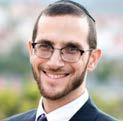
Singular vs Pleural
Why is it that the beginning of the pasuk speaks in the plural (םכרצקבו) and then changes to the singular תאפ הלכת אל ךדש? Perhaps this can teach us an important lesson. One should not hypothesize that he has a small field and the corner
We may add that the performance of tzedaka and chesed related mitzvot are not only for the benefit of the recipient, but the contributor gains from the contribution as well. As the Sefer Hachinuch teaches us
– our hearts follow our actions. By engaging in acts of chesed we program ourselves to be better individuals. The Rambam declares that it is preferable to provide 100 individuals with $1 each than to provide one person with $100, so that we get accustomed to being involved in acts of chesed and program ourselves to view it as second nature.
Remain Connected
The Ohr Hachaim’s second question is what is the connection between the laws of leket and pe’ah (האפו טקל) to the previous pasuk that discusses the punishment of karet (תרכ) for eating a sacrifice after its allotted time? We are not going to get into
28 TORAH TIDBITS 1513 / ACHAREI MOT - KEDOSHIM
RABBI SHALOM ROSNER
Rav Kehilla, Nofei HaShemesh Maggid Shiur, Daf Yomi, OU.org Senior Ra"M, Kerem B'Yavneh
ָךְדָֽׂש ת ַאְּפ ה ֶּלַכְת א ֹל םֶכְצְרַא רי ִצְק־תֶא םֶכְרְצֻקְבּו )ט:טי ארקיו( :טֵּֽקַלְת אֹל ָךְריִֽצְק טֶק ֶלְו רֹ צְקִל
תובבלה תוכשמנ תולועפה ירחא
the intricacies of what karet means, but essentially it is a severe punishment (תרכ – literal meaning – disconnect).
The Ohr Hachaim explains, al pi drash, if one transgresses and is liable for karet, he should not throw in the towel and have the attitude of “well, I am doomed for karet anyway so why bother engaging in mitzvot- might as well enjoy life.” This was the erroneous attitude of acher (רחא) after he was convinced, he had no place in the world to come. How do we derive this lesson from these pesukim?
םכרצקבו – when you feel as if you are cut off (which is the meaning of the word תרכ)
ךדש תאפ הלכת אל – don’t remove the corner – in other words, remain attached. Although you may have messed up on one mitzva, retain the connection via the remaining 612 mitzvot. In fact, the pasuk continues, טקלת אל ךריצק טקלו – even with respect to the mitzva you transgressed--ךריצק טקל try to reconnect to that mitzva as well טקלת אל. There is always the ability to engage in teshuva!
May we perform acts of chesed no matter how “small” we may perceive them to be, assist the needy and strengthen our connection to Torah and mitzvot so that we remain Kedoshim- a holy nation.
FOR SALE
MEKOR CHAIM - Close to the mesila park, large 4 rooms, 98m, Shabbat elevator, 2 balconies, good shape, master bedroom, quiet. 3,700,000 NIS
GERMAN COLONY - Nice 4 rooms, modern building with Shabbat elevator, master bedroom, bright, quiet, parking, storageroom 4,600,000 NIS
TALBIEH - Large 3 rooms, in a luxury building with Shabbat elevator, sukkah balcony, master bedroom, bright, quiet, storageroom, parking, rare!
HEART OF BAKA WITH GARDENluxury 5 rooms, 200m, with private garden of 125m, large living room, 2 parking spots, storageroom, quiet, rare!
28, Kovshei Katamon Street, Jerusalem Tel: 02.5633008 - www.ben-zimra.com
ENGLISH SPEAKING LAW FIRM
Orit Madar,Adv
Family Law and Mediation
Divorce, Child support, Custody
Inheritance & Wills
Yariv Madar, Adv.
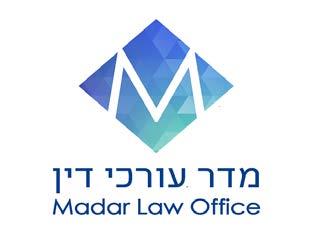
Bodily Injuries, Medical Malpractice
Civil Litigation
OU ISRAEL CENTER 29
Hillel St., Jerusalem
36 Dam hamkabim st., Modiin 02-6255592, 050-3202909
Please note the updated mailing address for the OU Israel Center: OU Israel
Keren Hayesod
1441
9101302
10
|
Madar@netvision.net.il
22
POBox
Jerusalem
SMILES Faculty, OU Israel Center
Rewarding Reward
The Torah teaches as an imperative ‘vchai bahem’. Rashi explains that this refers to the reward in the next world, since our world is temporal, and we don’t live forever. At the same time Chazal learn from this Passuk, that it is better to desecrate one Shabbat to save a life, enabling the person to keep many more Shabbatot. It therefore seems that the Passuk is referring to life in this world. How do we reconcile these two ideas?
R. Weinberger z’l in Shemen Hatov, discusses what it means to be a ‘ben olam haba.’ For example, one who says Ashrei three times a day Chazal considers as being a ‘ben olam haba’. Clearly, this does not mean one gets a free pass to the next world. Rather, it refers to living in this world with the mindset of the next. One who invests their service of Hashem with ‘chiyut’ life force, then already in this world, one lives an ‘olam haba’ type of existence.
R. Kestenbaum in Olam Ha’avodah begins his sefer on understanding what it means to have reward in the next world. We often have a picture of olam haba being like candy land, with many treats and rewards waiting for us to partake of them. Obviously, since the next world is not one of physicality this picture is a misnomer. Rather, the next world is
living with the intense feeling of closeness to Hashem, which is developed through doing the mitzvos in this world. Hence, Netivot Shalom explains that Chazal and Rashi are complementary ideas. Our job is to invest life force in each mitzvah that we do. As we say in Shabbat morning davening ‘tzahala vrina l’zecher malchuto’, one should feel joy and exhilaration each time we mention the name of Hashem, each bracha becomes an elevated experience. This feeling of closeness and spiritual connection is ultimately the ‘reward’ in the next world. Netivot Shalom in describing a person who may have kept with precision every mitzvah of Shabbat, albeit with no feeling, and no spiritual fire, will find themselves sitting in gan eden totally lifeless. One’s experience of the next world is predicated on one’s experience in this world.
R. Weissblum in He’arat Derech teaches us one method of reaching a level of connection and feeling, and that is through preparation. One who contemplates what one is about to do, and in front of whom one is doing this act, dramatically changes the mitzvah that one does. It is easy to ‘fall’ into doing a mitzvah, davening right before sunset, for example without even thinking of what it means to thank Hashem for all that transpired throughout the day. With a little bit of thought one can create a life of mindfulness in serving Hashem, and thereby enhance simultaneously one’s life both in this world and the next.
30 TORAH TIDBITS 1513 / ACHAREI MOT - KEDOSHIM REBBETZIN SHIRA
EXPAND YOUR PERSPECTIVE ON SHEMONEH ESREI
םילשורימ ׳ה רבדו הרות אצת ןויצמ יכ
Sharing Torah from the Land of Israel in Honor of Israel’s 75th
































Dedicated in loving memory of Charne Liba bas R’ Yitzchok Yehudah, by her children Ella Shapiro, Harry Klaristenfeld, Nancy Wilamowsky


OU ISRAEL CENTER 31
Register at ou.org/women/cts2023
and Mrs. Zahava Sturm, Yerushalayim
Mrs. Leah Feinberg Ramat Beit Shemesh
Mrs. Aviva Dworkin Yerushalayim
Rebbetzin Chana Deutsch Yerushalayim
Mrs. Dini Coopersmith Yerushalayim
Mrs. Rookie Billet Yerushalayim
Rabbanit Etta Bendavid Ra’anana
Mrs. Leora Bednarsh Gush Etzion
Rebbetzin Yehudis Golshevsky Yerushalayim
Mrs. Karen Goldscheider Yerushalayim
Mrs. Elana Glatt Yerushalayim
Mrs. Yael Gelernter Ramat Beit Shemesh
Mrs. Sara Frieberg Beit Shemesh
Ms. Rivi Frankel Yerushalayim
Mrs. Leah Herzog Givat Ze’ev
Mrs. Abby Lorkis Givat Shmuel
Rebbetzin Abby Lerner Yerushalayim
Mrs. Tali Ifrah Yerushalayim
Mrs. Karen Hochhauser Beit Shemesh
Rabbanit Fran Miller Mitzpe Yericho
Mrs. Sarina Novick Mitzpe Yericho
Mrs. Zemira Ozarowski Mitzpe Yericho
Mrs. Leah Silver Yerushalayim
Mrs. Elisheva Shmidman Yerushalayim
Mrs. Rivka Segal Yerushalayim
Mrs. Sara Malka Reichman Ramat Beit Shemesh
Mrs. Sivan Rahav Meir Yerushalayim
Mrs. Tali Pfeiffer Ramat Beit Shemesh
Mrs. Hava Preil Givat Ze’ev
Rabbanit Shani Taragin Kfar Etzion
Dr. Chana Tannenbaum Nof Ayalon
Mrs. Aura Sutton Yerushalayim
Mrs. Atara Starr Mitzpe Yericho
Mrs. Rivka Yudin Ramat Beit Shemesh
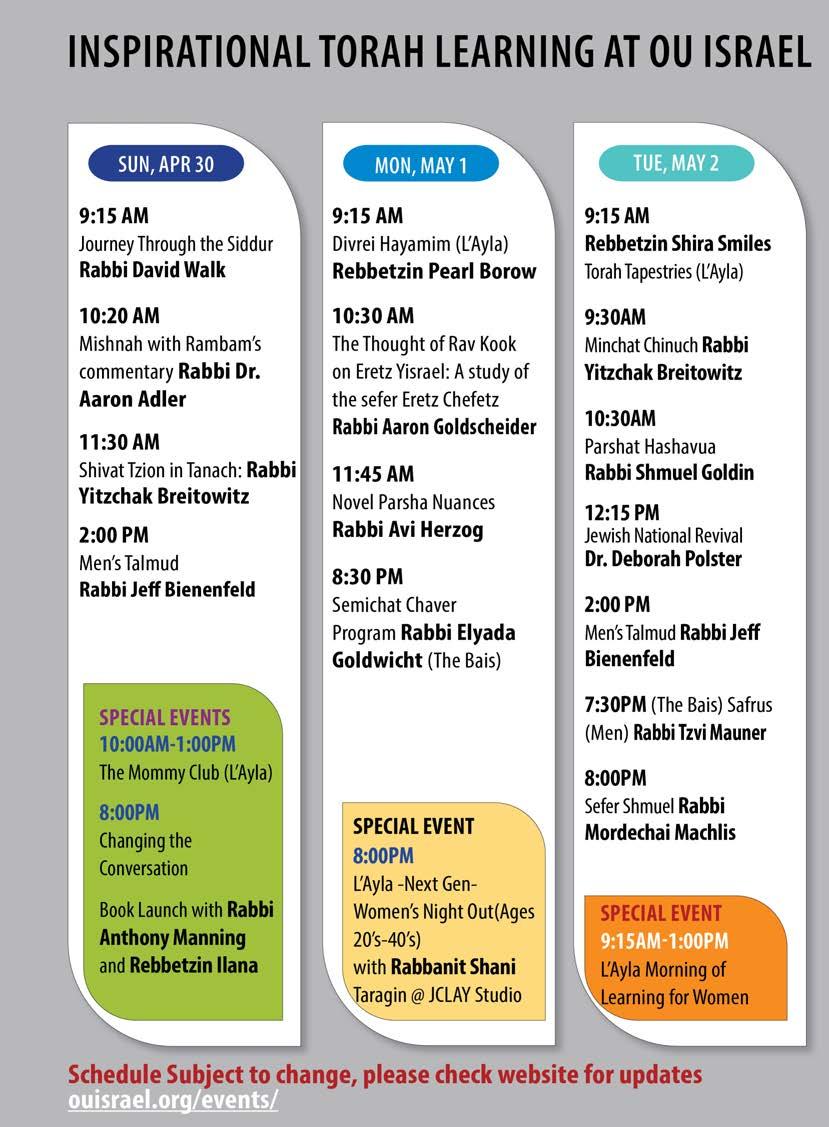
32 TORAH TIDBITS 1513 / ACHAREI MOT - KEDOSHIM
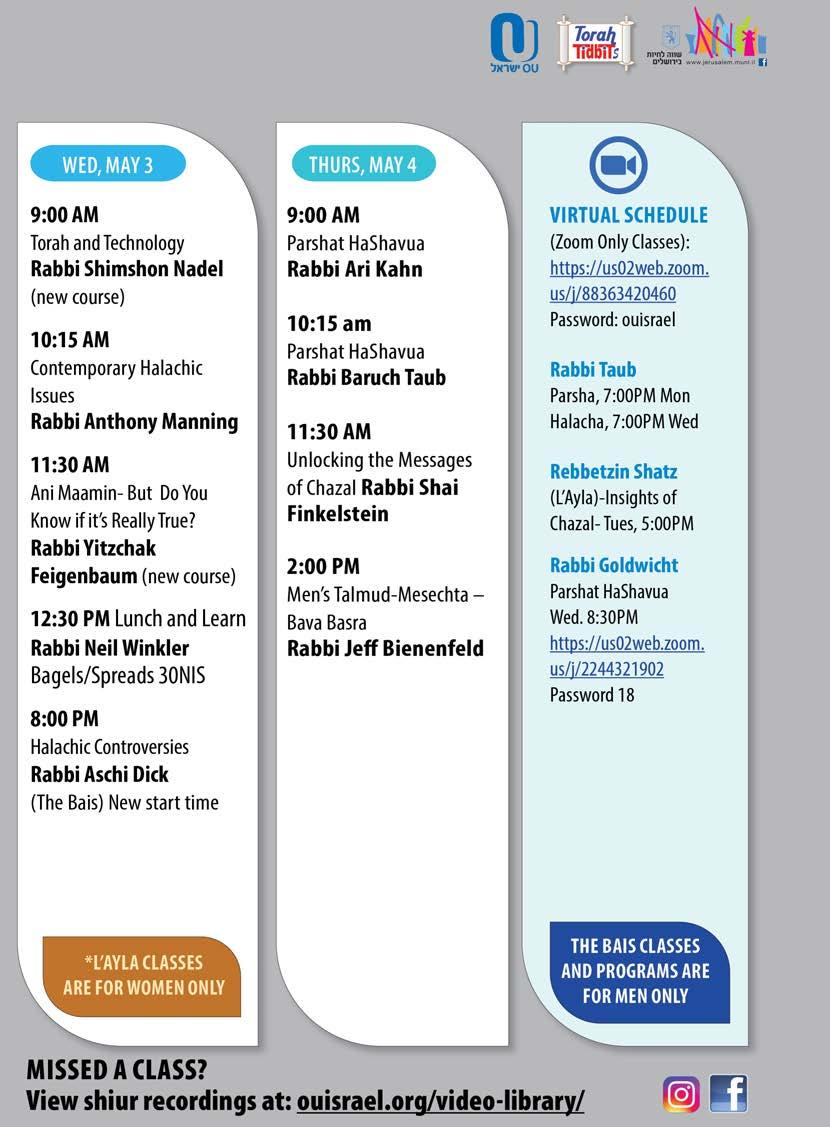
OU ISRAEL CENTER 33
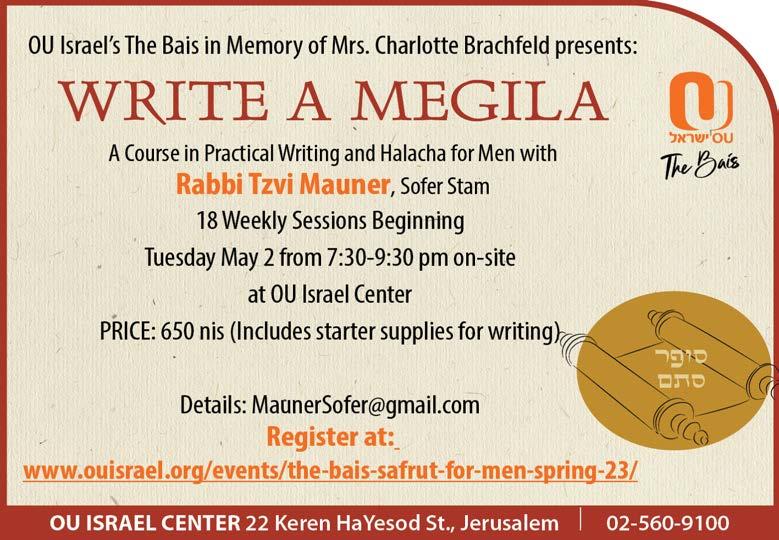
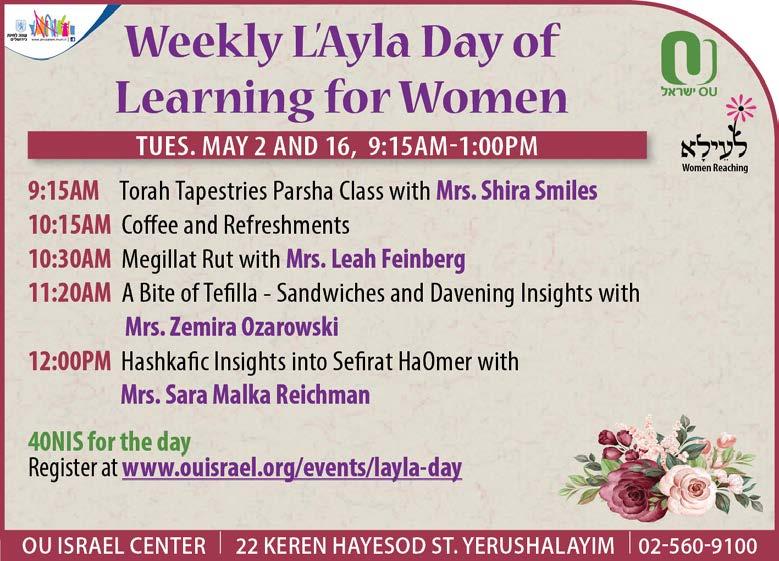
34 TORAH TIDBITS 1513 / ACHAREI MOT - KEDOSHIM
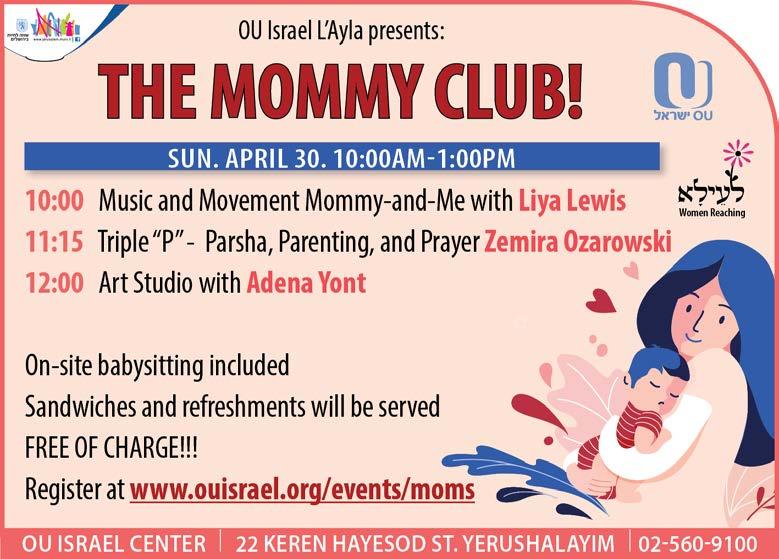
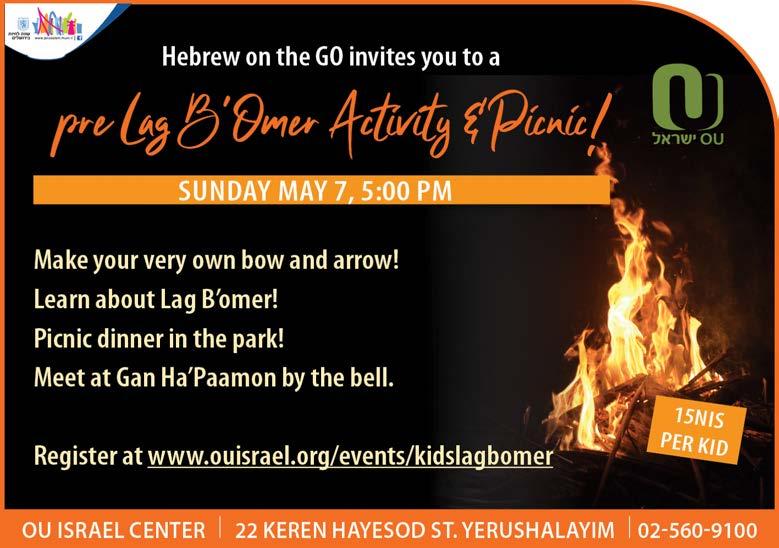
OU ISRAEL CENTER 35
DOROT - The OU Women's Intergenerational Choir
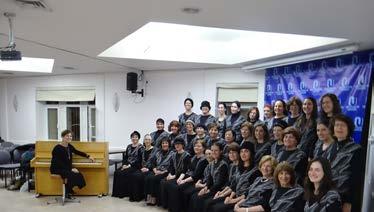
Director Hadassah Jacob 052-384-7230

Monday Evenings 7:00 - 9:00pm

PRI HADASH
WOMEN'S WRITING WORKSHOP AT THE OU ISRAEL CENTER
Monday mornings 10.30-12.30
For more details, call Ruth 02-628-7359 or Judy 054-569-0410
GET FIT WHILE YOU SIT: Exercise for ladies
Join us on Sundays 12:45-1:30pm at the OU Israel Center Sura Faecher 0504153239
SHABBAT AFTERNOON SHIUR WITH RABBI CHANOCH YERES outside the back of the OU Israel Center at 5:00pm
A small Sefer Torah with its own Aron Kodesh is available to shiva houses or for any other necessary occasion on a temporary free-loan basis. If needed call Uri Hirsch 0545513173
36 TORAH TIDBITS 1513 / ACHAREI MOT - KEDOSHIM
SHIUR SPONSORS


Thursday, April 27 - Rabbi Ari Kahn’s shiur is sponsored by Esther Bartov in memory of her mother
ה”ע לדנמ םחנמ ברה תב הסדה נ”על Yahrzeit on רייאב ’ה
Thursday April 27 - Rabbi Shai Finkelstein’s shiur is sponsored in memory of Rav Kodesh ben Chaim z”l
Sunday, April 30 - Rabbi Adler’s shiur is sponsored in loving memory of Mrs. Sally Brauer a”h
ה”ע ריאמ תב הקבר הרש of Chicago by her family. Her eighth yahrzeit is רייא ’ט.
Tuesday, May 2nd - Rabbi Goldin’s shiur is sponsored by Annie & Robert ץיווסרה טרבורו הנח in loving memory of Annie’s mother
רכזל ןידלוג ברה לש רועש
ה”ע רשיילפ תיבל קינטולז אליב ןמלז רטלא תב הקבר
Rabbi Goldscheider’s shiur has been sponsored for the 2023 Academic Year
ל’’ז המלש ןב בוט םשו ה’’ע םהרבא תב םירמ תמשנ וליעל
Rebbetzin Shira Smiles shiur is sponsored for the 2023 academic year by Dr. & Mrs. Menachem Marcus in memory of their parents, Rose & Dr. Emanuel Marcus z”l -
ל”ז סוקרמ השמ ןב יכדרמו ריאמ ףסוי תב לזייר Rosi and Ernest Strauss z”l -
ל”ז סוארטש דוד ןב לאינדו םהרבא תב דומיל
Rabbi Breitowitz’s Tuesday Shiur - Minchat Chinuch is sponsored for the academic year 2023 by Rabbi Refoel & Sharon Auman in memory of their parents Edith & Reiner Auman z”l
ד”יה לאפר תב ה”ע רתסאו ל”ז קודצ ןב הנוי and their son Rabbi Shmuel Eliyahu Auman z”l
י”נ לאפר ברה ןב ל”ז והילא לאומש ברה
Rabbi Goldin’s shiur is sponsored for the 2023 academic year by Dr. & Mrs. Menachem Marcus in memory of beloved aunts Irma Haas a”h and Hilde Myer a”h
Rabbi Manning’s shiur has been sponsored for the 2023 academic year
ל’’ז ןמלק ןב גילזו ה’’ע תידנרב תב הנרב תמשנ יוליעל Rabbi Taub’s weekly Thursday Parshat HaShavua Shiur is sponsored by The Jewish Legacy Foundation
OU ISRAEL CENTER 37
Getting There
Rav Yaakov Moshe Shurkin, a long-time maggid shiur at Yeshivas Rabbeinu Chaim Berlin, learned in the yeshivah of Radin for fifteen years and had a close relationship with the holy Chafetz Chaim. One year, he spent the month of Elul in the yeshivah of Novardok, soaking in their powerful mussar approach and focusing on inner work and intensive middos development. When it came time for him to leave, he went to speak with the rosh yeshivah, Rav Avraham Yoffen. While waiting, he had a brief conversation with the rebbetzin, the daughter of the Alter of Novardok, Rav Yosef Yozel Horowitz. She asked him, “Tell me, please, what would you say is the difference between Radin and Novardok?”
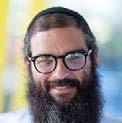
The bachur Yaakov Moshe was silent and didn’t know how to answer. The Rebbetzin then said, “I’ll tell you. In Radin, when you are in the presence of the saintly Chafetz Chaim, you are seeing the greatness of the holy Kohen Gadol in his avodah, and you learn vus a mensch ken zein, what a person
can become, un vus a mensch darf zein, and what a person ought to reach. However, here in Novardok, you learn vus a mensch iz, what a person actually is—where you are holding and what you are right now.”
Speak
The Midrash expounds:
taken to imply that you will be like Me, therefore it says, “...for
Hashem, am Holy” — My Holiness is higher than your holiness.’ (Vayikra Rabbah, 24:9)
In other words, implied in Kedoshim tihiyu, “You shall be holy,” is the Ribbono Shel Olam’s qualifier: ‘You might think that My intention in this commandment is for you to be as holy as I am. That is, however, not the case, as the pasuk continues, ‘ki kadosh Ani, Hashem, “for I, God, am holy”; My holiness is always going to be superior, beyond anything you can attain.’ But we could ask: is it really necessary to point out that we are not actually expected to be equal to God? Does the Midrash really need
38 TORAH TIDBITS 1513 / ACHAREI MOT - KEDOSHIM
RABBI JUDAH MISCHEL
Mashpiah, OU-NCSY Executive Director, Camp HASC Author of Baderech: Along the Path of Teshuva (Mosaica 2021)
םיִׁשדְק םֶהֵלֲא ָּתְרַמָאְו לֵאָרְׂשִי־יֵנְּב תַדֲע־לָּכ־לֶא רֵּבַּד :םֶכיקֹלֱא ׳ה יִנֲא ׁשֹודָק יִּכ ּויְהִּת
to
congregation of Israel, and say to
shall be holy, for I
the entire
them, You
Hashem your God, am holy. (Vayikra 19:2)
לֹוכָי ,ּויְהִּת םיִׁשדְק :ןיֵדָהְו ׁשֹודָק יִּכ :רַמֹול דּומְלַּת יִנֹומָּכ םֶכְתַּׁשֻדְקִמ הָלְעַמְל יִתָּׁשֻדְק ,יִנֲא ‘“Be holy” might
I,
be
המלש האופר האל היח ןב םייח עשוהי
Each of us has the ability to transcend ‘what we are right now’
to point out that a human being, a creation of flesh and blood, cannot reach the Infinite heights of our Creator?





Rosh Yeshivas Mir and author of Sichas Mussar, Rav Chaim Shmuelevitz, zt’l, had an extraordinary insight into the way Chazal view how powerful we are when we activate our spiritual potential. Each of us has the ability to transcend ‘what we are right now’ and achieve lofty levels of self mastery in avodah and midos development. Indeed, we can become so holy that if it were not for the textual confirmation that the Ribbono shel Olam does not literally expect us to reach His infinite heights, we would be left with a hava amina to believe that indeed we can!


Two hundred years earlier, Reb Dov Ber, The Great Maggid of Mezritch, also revealed a radical teaching: “Be kadosh (ki, ‘thus’) I, Hashem, am kadosh”: By living a life of kedushah, and sanctifying God’s name by generating Divine honor, praise and blessing, we are actually able to ‘add’ to the holiness of Hashem. In this way, ־ודק הלעמל יתש, “My holiness above” in the upper worlds - is םכתשודקמ — “dependent on your holiness”, dependent upon the way we con duct ourselves here, below, in this world.

םיִׁשדְק literally means “You will be holy.” It seems that rather than using the future tense, the Torah’s text would have used the form of a command: ויה םישדק, “Be holy.” Yet, the Rambam sees deliberate meaning in using the future tense:

And the Torah has already assured us that, ultimately, Yisrael ‘will’ do teshuvah towards the end of her exile and be immediately redeemed: “There shall come a time when you ‘will’ experience all these things... and you ‘will’ return to Hashem.... And Hashem ‘will’ bring you back from captivity.”
This Shabbos may we remember vus a mensch darf zein, ‘who we are’, and also consider vus a mensch ken zein, ‘what we can become’ — indeed, what we ‘will’ one day become: redeemed, free, kedoshim!
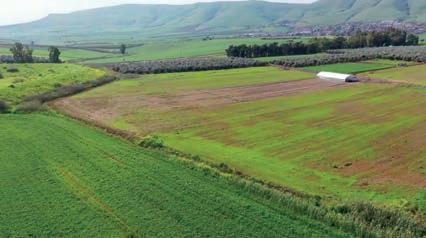
OU ISRAEL CENTER 39
ּויְהִּת
הָבּוׁשְּת תֹוׂשֲעַל לֵאָרְׂשִי ףֹוּסֶׁש הָרֹוּת הָחיִטְבִה רָבְכּו ןיִלָאְגִנ ןֵה דָּיִמּו ןָתּולָּג ףֹוסְּב "םיִרָבְּדַה לָּכ ָךיֶלָע ּואֹבָי יִכ הָיָהְו" )א'ל ,םירבד( :רַמֱאֶּנֶׁש ,׳ֹוגְו Have You Ever Dreamt Of Owning Your Own Land For Investment, Farming, or Future Building In Israel? Now You Can! Galilee Region Mercaz Region Hadera Zichron Yaakov Izzy Leizerowitz IL - 972.52.682.9367 USA - 786.385.8859 Broker Fee 2%+ VAT Private Land (In the TABU) Minimum 100 sqm and up... You Will Registered in TABU Available For Farming, or Farming + Investment + More ATTENTION ! ,"ָךיקֹלֱא ׳ה דַע ָּתְבַׁשְו" )ב'ל םירבד( :'"ָךיקֹלֱא ׳ה בָׁשְו" )ג'ל םירבד(
The second of the two parshiyot we will read this coming Shabbat, Parshat Kedoshim begins with the instruction that we must seek holiness-"Kedoshim tihiyu ki Kadosh Ani Hashem Elokechem-You shall be holy, for I, Hashem, your Lord , am Holy."
Our Chazal in the Midrash Rabba (Vayikra Rabba 24) interpret this verse to mean -Yachol KiMoni-Hashem instructs us "Be like Me-that we should strive to be holy, to emulate Hashem.
The great Chasidic Master, the Oheiv Yisrael, Rebbe Avraham Yehoshua Heschel of Apt zy'a, looks to another very perplexing Maamar Chazal to explain our verse. The Rebbe asks, how can we as mere human beings emulate Hashem in his infinite wisdom?
The Gemara in Brachot (daf vav) tells us that just as we are instructed to put on Tefilin, so too Hashem also dons tefilin. Our tefilin contain the verse:
Shema Yisrael Hashem Elokeinu Hashem Echad(Hear Israel, Hashem is our God, Hashem is One), while Hashem's tefilin contain the verse: Mi K'Amcha Yisrael, goy echad 'Aaretz- Who is like you Israel, a unique people on Earth...
The Rebbe explains, surely this teaching cannot be taken literally, that Hashem who is beyond any physical form or limitation actually dons tefilin! Rather there is an important message being communicated
BY RABBI SAM SHOR Program Director, OU Israel Center
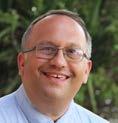
REBBETZIN SHIRA SMILES
via this parable. Just as our tefilin contain the verse of Shema, attesting to our unwavering devotion and love for Hashem, so too, Hashem's proverbial tefilin contains a verse showering praise, love and devotion upon the Jewish People!
Tribute to the Trio
The Rebbe explains that we learn from this beautiful teaching, that even if we view this and every mitzva as an opportunity to cling to God, to demonstrate our love and fidelity to the Master of the Universe, that love and fidelity pales in comparison to the enduring love that Hashem feels for the Jewish People.
The Rebbe's keen insight regarding this mitzva of tefilin really provides us with a new understanding of how we relate to each of the mitzvot.
In a deeply powerful scene, Moshe Rabbeinu is found with his hands held high on top of the mountain praying for the people gripped in a raging battle with Amalek below. Ahron and Chur stood on either side of Moshe Rabbeinu holding his hands aloft (Shemot 17;10). Rashi teaches that Chur was the son of Moshe’s sister, Miriam. What more do we know about Chur? What is the symbolism of his joining with Ahron to support the hands of Moshe Rabbeinu?
Mitzvot are not solely an opportunity to cling to Hashem, to demonstrate our commitment and trust in the Ribono Shel Olam, but also to simultaneously experience Hashem's divine embrace, to realize that Hashem bestows his unending love upon all of Klal Yisrael.
May each of us be blessed not only to strive to emulate Hashem, to live lives of Kedusha, but also to feel and experience Hashem's divine embrace.
on stood and teach people calf Chur, person like qualities relationships path, whenever service shamayim example These Rabbeinu approaches have Amalek,

40 TORAH TIDBITS 1513 / ACHAREI MOT - KEDOSHIM
SIMCHAT SHMUEL 26 TORAH TIDBITS / BESHALACH 5781
Rabbi Roberts in Through the Prism of Torah explains that Ahron and Chur personified contrasting character traits. Ahron was a peacemaker, he constantly looked for ways to create harmony among his people. Indeed, he was ready to compromise his own values to achieve this goal, as we see in the story of the sin of the golden calf. Chur, For In 4 elevator, character, of For house, renovation, bathroom, asking
CROSSROADS
Supervised work in a supportive environment while earning a stipend for teens 14-18. For more information contact Ayelet at 054-646-5304 ayelet@crossroadsjerusalem.org or Deborah at 054-675-2026 deborah@crossroadsjerusalem.org



June 29th to July 30th

OU ISRAEL CENTER 41
SUMMER APPRENTICESHIP PROGRAM
Faculty, OU Israel Co-Director Midreshet Tehillah
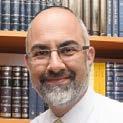
Three Mitzvot of Sensitivity
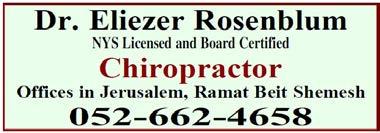
Even before Hillel told the potential convert, standing on one leg, “Don’t do to others what you would not want done to you”, our religious authenticity as Jews has depended on the way we treat others. Interpersonal mitzvot are the foundation of a Torah life.
Take tzniut - the Torah’s perspective on personal dignity. Often an emotionally charged issue, tzniut is far deeper than a technical discussion of dress-codes and behavioral norms. It is clearly not a ‘mitzvah for women’, but one that men also need to take seriously. In fact, much of the trauma triggered by tzniut stems from a failure to treat others kindly and sensitively. Here are three relevant examples from our parasha.
The obligation of Ahavat Re’im is effectively a negative one - not to treat others inappropriately. Those who take tzniut seriously must never cross the line into rude or insensitive behavior toward those who may not act or dress according to halakhah or, as is often the case, not in line with the preferences or customs of another community. By the same token, visiting a community with a strongly-held objection to certain types of clothing or
behavior, and ignoring their preferences, also demonstrates a lack of sensitivity and consideration. Greater awareness on both sides of the mitzvah of Ahavat Re’im would defuse much of the tension surrounding tzniut.
The mitzvah of Lo Tisna commands us never to reject another Jew in our hearts and minds. The Or Hachayim warns that we breach this obligation every time we refuse to accept a fellow Jew as our sibling, but reject them as not coming from ‘my community’. Breach of this mitzvah is tragically rampant wherever people use religious, hashkafic or political disagreements to reject other people, and tzniut can become a measuring-stick for this type of rejection. We should treat every Jew as our sibling, irrespective of the way they dress.
Thirdly, the mitzvah of Tochachah commands us to rebuke others who have wronged us or who are behaving inappropriately. Again, issues of tzniut can become a flash-point for rebuke and recrimination, often without proper consideration. Tochachah is only valid where it will ultimately increase the love and acceptance between those involved; it is
42 TORAH TIDBITS 1513 / ACHAREI MOT - KEDOSHIM
RABBI ANTHONY
MANNING
certainly unacceptable to embarrass someone publicly in the process. And just as there is a mitzvah to give tochachah when it will be heeded, there is a mitzvah to remain silent when it will not. This does not mean that we should drop our halakhic standards. But tochachah today clearly requires sensitive chinuch rather than rebuke.
Mishlei associates tzniut with wisdom. Our approach to long-term improvement must be built on chochmah and nuance. Above all, it must be grounded in the love, sensitivity and respect that our parasha requires us to show to every Jew.
Rabbi Manning is co-author of a new book: “Reclaiming Dignity – A Guide to Tzniut for Men and Women”, launching at the OU Israel Center on Sunday April 30.


OU ISRAEL CENTER 43
GEULAS YISRAEL
BY RABBI MOSHE TARAGIN R am, Yeshivat Har Etzion
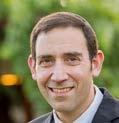
The 3rd Kiddush Hashem
Hashem is infinite and His uncontainable presence spans the entire cosmos. Yet, His presence on this Earth is a function of human behavior. By empowering human beings with freedom of conscience and with free will, Hashem anchored His presence on Earth to human history.
In particular, Hashem entrusted His chosen people as His representatives to humanity. Actions which augment His presence constitute a kiddush Hashem and, sadly, actions which diminish His presence create a chilul Hashem. The commandment to generate a kiddush Hashem stems from the pasuk of לארשי ינב ךותב יתשדקנו, a phrase which underscores the relationship between Jewish history and kiddush Hashem.
Jewish Martyrdom
Bringing Hashem into our world hasn’t always been easy. Ideally, we were meant to represent Him by living in His Land and modeling a godly lifestyle to an international audience. Namely, our kiddush Hashem agenda was meant to be peaceful and serene. Sadly, we wrecked that historical narrative and replaced it with a more
circuitous and violent arc, which would plunge us into two exiles and thrust us into thousands of years of homelessness.
During that long dreadful odyssey, we would be fiercely challenged to uphold Hashem’s presence. The Jewish faith was viciously attacked and the rising popularity of Christianity and Islam certainly corroborated antagonistic claims that Hashem had replaced us with a different nation. We faced brutal religious persecution and fell under immense pressure, both physical and psychological, to convert. The cost for defiance was often death. Refusing to buckle to this ferocious pressure, we valiantly defended the divine presence with our own lives. The long trail of Jewish martyrdom is a fearsome but heroic story of a loyal nation doggedly upholding their commitments at Sinai.
The first public theological faceoff over the presence of Hashem occurred between Nevuchadnezar and three Jews who had been expatriated from Yerushalayim to Bavel. Resisting this indomitable tyrant’s demand to worship his idol Chanania, Mishael, and Azaryah faced a fiery death sentence. Their defiant stand and their miraculous escape restored Hashem’s presence to a gloomy world. As they were being hurled into the fire the shouted אל ’ה ונל אל דובכ ןת ךמשל םא יכ ונל - they were conscious that their heroism was repairing Hashem’s presence during a broken period of history.
44 TORAH TIDBITS 1513 / ACHAREI MOT - KEDOSHIM
Approximately 500 years later, Rebbe Akiva and his colleagues were mercilessly and savagely murdered as they resisted the mighty Roman empire and its colossal armies. Rebbe Akiva’s repeated insistence upon teaching Torah, despite stiff Roman decrees, landed him in jail awaiting execution. As he was being crushed to death he recited Shema Yisrael and launched two thousand years of Jewish martyrdom. Over the next two millennia, we faced furious and relentless pressure to abandon our religion and abdicate our historical mission. Following in Rabbi Akiva’s legacy we courageously defended Hashem’s presence by sacrificing our own lives for an invisible G-d we literally loved more than ourselves.
Kiddush Hashem Through Life

Kiddush Hashem, however, isn’t only expressed through a dramatic act of martyrdom. Jews don’t have a death wish and we hope to represent Hashem through the lives we lead and through the values we display. Every page of Torah studied and every mitzvah performed increases Hashem’s presence, even if that amplification isn’t discernible to the naked eye. Additionally, in our day-to-day behavior we model the dignity and nobility of a life lived before Hashem, showcasing the value of commandments and of historical covenant.
Moreover, by infusing our lives with ethical spirit we hope to inspire the world to higher moral ground. The gemara documents Torah sages who behaved with extraordinary moral sensitivity to avoid any defilement of Hashem’s spirit. These religious figures understood that as they were associated with Hashem their behavior would be heavily scrutinized. They
OU ISRAEL CENTER 45
voluntarily returned lost items to Gentiles, were careful about their eating habits, and promptly paid their bills. Alienation from religion often stems from the inability to reconcile religion with moral instinct. When religion appears to clash with moral sensibilities it is often discarded. Witnessing religious personalities acting inappropriately disillusions people from religion.
Religious Jews have, recently, become more visible in the public eye - both in Israel and even in the United States. As religious people enter the public realm, they must be extremely vigilant about their behavior and their speech. As public personalities associated with Judaism their behavior reflects the image of Hashem and they can raise His presence of, G-d forbid sabotage it.
The 3rd Kiddush Hashem
In addition to defending Hashem with our lives and to living a moral lifestyle of commandments, there is a third manner in which Hashem’s presence is augmented. In perek 20, Yechezkel describes a narrative of Yetziat Mitzrayim which is starkly different from the story of sefer Shemot. In his portrayal, Hashem expected us to launch our own redemption by withdrawing from our pagan habits. Sadly, decades of slavery had eroded our faith and we had descended into pagan culture. Unfortunately, we lacked the courage and the imagination to take the first leap in response to Hashem’s invitation.
Responding to our apathy Hashem “considered” annihilating us. Failing to fulfill historical expectations we had little right to be redeemed from slavery. This alternative narrative poses a thorny question which sefer Shemot ignores: why were we redeemed if we were undeserving?
The answer to that question is unambiguous: We were redeemed because our destruction would have reflected poorly upon Hakadosh Baruch Hu. As His chosen nation, we had been aligned with Him for the previous 400 years. To annihilate us at that delicate historical juncture would have caused a regression of the divine presence from our world. That level of Chilul Hashem could not be countenanced and, therefore, we were liberated and redeemed even though we were undeserving of His intervention.
Yechezkel’s outline of Yetziat Mitzrayim profiles a third dimension of kiddush and chilul Hashem. The general “state” or condition of the Jewish people reflects upon Hashem. When we flourish, Hashem’s presence is augmented. When our national condition declines, Hashem’s presence regresses and a chilul Hashem follows. Sometimes we are redeemed to avoid an exacerbation of chilul Hashem.
The Holocaust was the darkest period in Jewish history since the destruction of the second Mikdash. The attempt to methodically eliminate anything and everything Jewish from the streets of Europe was an
46 TORAH TIDBITS 1513 / ACHAREI MOT - KEDOSHIM
Over the years since our State was renewed, as Israel has prospered, Hashem’s presence has similarly increased.
assault not just on the Jewish people, but upon the presence of Hashem. For those five dark years Hashem’s presence was dimmed by malicious and murderous human behavior. A chilul Hashem of that magnitude required a kiddush Hashem to restore the grandeur of Hashem.

That kiddush Hashem occurred a mere three years afterwards. Three years in the sweep of history is a passing hiccup. Our return to our Land and to historical relevance and even prominence reestablished His presence. Over the years since our State was renewed, as Israel has prospered, Hashem’s presence has similarly increased. Hashem’s presence is not only a product of dramatic theological religious faceoffs, or of Torah infused lives. Hashem is affected by the arc of Jewish destiny; when our national condition ascends, His presence is more deeply felt.
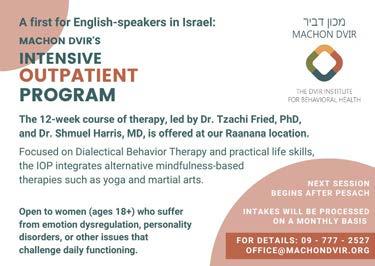

We are living in the third dimension of kiddush Hashem. We may not have deserved redemption, but history demanded it. Hashem ‘had to’ respond to the atrocity of the Holocaust. The State of Israel resuscitated Jewish pride and relieved Jewish suffering, but, most, importantly, renovated Hashem’s glory in the world of Man.
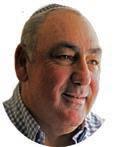
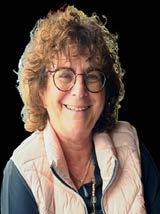





OU ISRAEL CENTER 47 One person’s trash is another person’s treasure… We buy old sifrei kodesh, judaica gold, silver, coins, collectables, banknotes, antiques and more… ל רודמ רוד Ran: 054-5561223
Flying Soon? Travel with Confidence 1UniTravel - Medical Insurance at great prices Choose from multiple options 1unitravel.brokersnexus.com 1UniSim - Sims for USA and Worldwide Starting at $40 sales@1unisim.com Call 077-400-3199 or USA 718-715-0001 Twice asNice f or Half the Price! ™ motti@mrashkelon.com | www.mrashkelon.com 054 7312118 Our teamwork will make your dream work Your Licensed Real Estate Agents
BY REBBETZIN DR. ADINA SHMIDMAN



HAFTORAH FOR ASHKENAZIM


AMOS 9:7 - 9:15
When the plowman shall meet the reaper (Amos 9:14)
In a description of the overflowing bounty in the end of days, the Navi Amos describes the plowman meeting the reaper. When do these two people meet? The Malbim describes how the plowman coming to dig and prepare the earth in the spring will meet with the reaper who is still in the field cutting his crop from the previous year. Because there will be so much bounty to harvest, it will take months to reap the crops and thus two field workers will meet.
In a homiletic sense, these two people represent two sides of the life journey. As the plowman, we work in this world, HaZorim B’Dima - who plow in tears, and often do not experience the joy of seeing the results of our efforts. We toil in our homes,
workspaces and community but don’t necessarily see the results of our actions. Often the outcomes of our input are not recognized until years later. As an example, only when children become adults do they appreciate the decisions of their parents. By contrast, as the reaper, we don’t appreciate the efforts that go into our experiences. We consume in this world without noting and recognizing the labor that contributes to our bounty. The gifts that are bestowed upon us are often not fully appreciated.
Amos shares that in the future, the plowman will meet the reaper. In Messianic times, there will be a tangible connection between effort and result. We will be able to recognize input and output in a way that we can adequately express gratitude for the gifts that Hashem gives us.
48 TORAH TIDBITS 1513 / ACHAREI MOT - KEDOSHIM
HAFTORAH
רֵצֹּקַּב ׁשֵרֹוח ׁש ַּגִנְו
Rebbetzin Dr. Adina Shmidman is the founding director of the Orthodox Union Women’s Initiative and the rebbetzin of the Lower Merion Synagogue in Bala Cynwyd, PA.
INSIGHTS 053-‐427-‐6363 CINEMA
CITY
MALL,
JERUSALEM ArthurMSamuels@gmail.com PODIATRIST Over
30
years
experience Arthur
Samuels,
DPM Licensed in Israel & America CINEMA CITY MALL, JERUSALEM NACHI REALTY 054-461-3943 New building under construction in Katamonim on the border of Katamon. 2-5 room apartments. Starting at 2.1m shekel Last 2 room apartment + mirpeset & underground parking in new building under construction in a great location. 2.15m shekel. 3 & 4 rooms also available
Rent in the German Colony on Emek Refaim street, 2 rooms, one floor up, good shape, parking. 4,600nis/month
For
Be’er Tziporah a"h - Bottled Water Gemach
Walking down King George St. in Jerusalem and want a cold bottle of water?
Come help yourself to a bottle at 52 King George.
In loving memory of Yoni’s wife Tziporah a"h, a true Eishes Chayil, always full of chessed, kindness and laughter, and brought life and strength to so many people, that she touched! She was like Aron, who loved peace and pursued peace.

Yoni thanks Hashem for having the opportunity of having Tziporah in his life, to learn of her caring, patience and happiness, to overcome her challenges. May Tziporah's Neshama be a light onto the world, in a time of darkness, and may her Neshama shine to Gan Eden. Yoni misses Tziporah with tears in his eyes, as Hashem gave him a gift, a crown jewel, now he returns her to Hashem. With thanks and Toda. Love, Yoni
To help refill the supplysend tax deductible donations for Be’er Tziporah a"h Bottled Water Gemach
to Chabad of RechaviaRabbi Yisroel Goldberg email
Rabbi@JerusalemChabad.org
02 800-1717
www.JerusalermChabad.org/DonateShekels
In the heart of calm and pastoral BAKAPrivate arab house, 6 rooms, 500m + possibility of building 250m, huge garden, approx. 700m, completely renovated, underfloor heating + a/c, large parking, 5 bathrooms, 5 toilets, green
MENDEL 0528980111
BAKA - New penthouse, 4 rooms in a small luxurious building with character, alone upstairs, 3rd floor + elevator, 4 orientations, 3 toilets, 2 bathrooms, terrace / sukkah, 70m, parking, store-room
5450000 NIS MENDEL 052-8980111
VERY GOOD INVESTMENT!!
KATAMON HAYESHENA / Near EMEK REFAIM 3 rooms, 75m + independent unit, 30m, private entrance, garden in use, calm, parking
MENDEL 052-8980111
In the heart of BAKA in a calm and pastoral street - spacious 5 rooms, elevator, terrace, store-room, parking, near all amenities
5300000 NIS MICHAEL 052-3202488
ARNONA – 3 rooms, 60m that will be transformed to 90m, 3rd floor with elevator, store-room, parking
ONLY 2550000 NIS
MICHAEL 052-3202488
BAKA - quiet and pleasant little street5 rooms, 175m, on one level, alone upstairs, private entrance, elevator in the apartment, high ceilings
MIKAEL 052-3202488
TALPIOT HAYESHENA / little street – In a new quality project, 5 rooms, 140m, elevator, large garden, occupancy in 2 years
6000000 NIS MICHAEL 052- 3202488
IN THE MOSHAVA – 4 rooms, in a building after TAMA 38, balcony (part sukkah), elevator, renovated, open view, immediate –

MENDEL 052-8980111

OU ISRAEL CENTER 49
בוט יכ 'הל ודוה
Take a Walk Through History





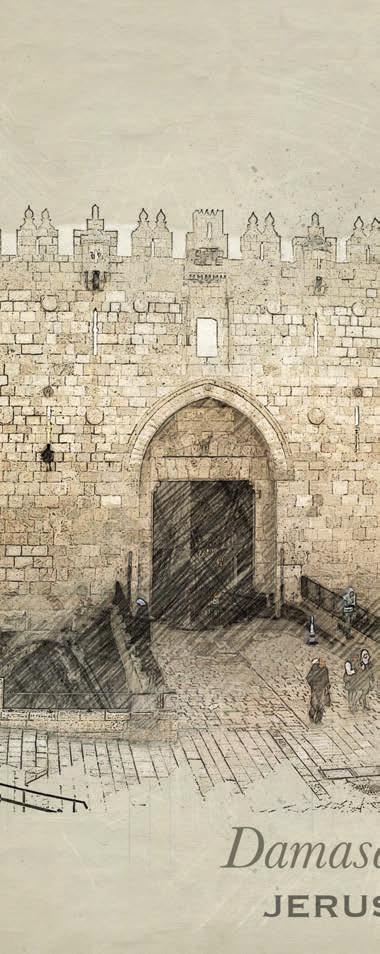
50 TORAH TIDBITS 1513 / ACHAREI MOT - KEDOSHIM
TOUR THE OLD CITY WITH ATERET COHANIM Tour reservations must me made in advance and confirmed by text or email register online at ateretcohanim.org/tours In Israel call Daniel 054-654-4407 dljerusalem@gmail.com In US call Shani 917-297-2075 shaniateret@gmail.com scan here to reserve your tour
tour with us the next time you are in Israel, you will be amazed at what we are doing to keep All of Jerusalem United with Jewish Life ^ Our RESERVATIONS MUST BE MADE IN ADVANCE Tours are filling up fast! RESERVE NOW!
Cohanim Tours Welcomes The World Orthodox Israel Congress and urges you to visit "Our Jerusalem" • Old City Tours • Shield of Jerusalem • Yemenite Village Tours available for 4/30 & 5/3 other dates available upon request
Please
Ateret
THE MOST SOUGHT AFTER LOCATION IN OLD KATAMON IN JERUSALEM


OU ISRAEL CENTER 51
FROM THE VIRTUAL DESK OF THE OU VEBBE REBBE
Correcting a Ba’al Korei
Question: What are the rules about correcting a ba’al korei?

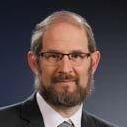
Answer: The Tur (Orach Chayim 142) seems to present a polar machloket on the matter. The Rambam (Tefilla 12:6) rules that if one made a mistake even on a single “dikduk” of a letter, we make him go back. Hamanhig (p. 160) prefers not correcting to embarrassing the ba’al korei. This is based on the midrash (cited by Tosafot, Avoda Zara 22b) that even if one reads the name “Aharon” as “Haron,” it is acceptable. The Shulchan Aruch (OC 142:1) paskens like the Rambam.
The Rama (ad loc., based on Terumat Hadeshen II:181) calls for corrections only when a mistake changes how the “matter” is understood. His contrasting cases are mistakes in ta’amei hamikra (trop) and nikud (vowels). The Mishna Berura (ad loc. 4) says that the real distinction is whether the meaning is changed, just that letters usually change the meaning (AharonHaron being an exception), and nikud/trop usually do not.
There may be indications that a mistake in a letter always warrants correction, whereas regarding nikud and te’amim changing meaning is the determinant (see B’er Moshe I:4). After all, the Rambam (ibid.) mentions letters, and the Yerushalmi’s (Megilla 4:5) example of needing correction is between “im” and “v’im” (vav as a prefix is translated as “and” but often does not change the meaning at all (Shemot 21:9 is one of many cases)). The Aruch Hashulchan (OC 142:1) gives, as an example of changing words, “keves” and “kesev” – the same letters, inverted, both meaning a sheep. Perhaps, then, the Rama is only lenient by non-impactful mistakes not involving letters. In short, it is unclear how much of a machloket there is between Rambam/Shulchan Aruch and Terumat Hadeshen/Rama.
There is much complexity regarding being yotzei b’dieved with a mistake that changes the meaning. The Terumat Hadeshen thought it likely (not definite) that according to the Rambam, a mistake disqualifies the mitzva, whereas

52 TORAH TIDBITS 1513 / ACHAREI MOT - KEDOSHIM
RAV DANIEL MANN
תמשנ
Gemach for Chatan and Kalla: Meals for wedding and Sheva Brachot at cost Eida Hachareidis Hechsher Tel:052-633-1744 gadgadood@gmail.com
יוליעל ל"ז ןמצלז לאיזוע םהרבא ןב םירפא לאוי
The Orthodox Union - via its website - fields questions of all types in areas of kashrut, Jewish law and values. Some of them are answered by Eretz Hemdah, the Institute for Advanced Jewish Studies, Jerusalem, headed by Rav Yosef Carmel and Rav Moshe Ehrenreich, founded by HaRav Shaul Yisraeli zt”l, to prepare rabbanim and dayanim to serve the National Religious community in Israel and abroad. Ask the Rabbi is a joint venture of the OU, Yerushalayim Network, Eretz Hemdah... and OU Israel’s Torah Tidbits.
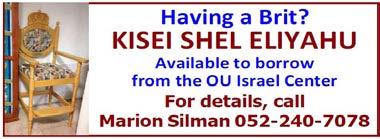


Hamanhig says one is yotzei. Others (see Beit Yosef, OC 142) reason that Hamanhig ’s b’dieved acceptance, based on the Aharon-Haron precedent, applies when the meaning is unchanged (Shut Beit Yaakov 76 posits that Haron is a different name than Aharon). There are different levels of l’chatchila and b’dieved (in order): 1. The ba’al korei should prepare for an exact reading (see Rama ibid.); 2. We correct right away, but not if the ba’al korei has “moved on.” 3. The aliya has ended with its beracha (see Eshel Avraham (Butchach) 142:1). 4. The sefer Torah has been put away. There might be a difference between Shabbat, with its specific text quota (see Berachot 8a), and weekday laining, if without the pasuk of the mistake, there are three p’sukim in the aliya and ten p’sukim overall (Bi’ur Halacha 142:1). Now we will over-generalize regarding guidance. A small percentage of trop mistakes change the meaning. The minhag is not to correct mistakes between letters with a dagesh and those without (even if we pronounce vet like vav and, in classic Ashkenazis, tov is pronounced like tet, and sof like samech/sin). The shva na / shva nach
distinction rarely changes the meaning, all the more so where people unfortunately do not distinguish with regularity (see Mishna Berura 128:120). Putting stress on the wrong syllable does not usually change the meaning, but one needs to know dikduk well to know when it does. Trop usually does not change the meaning, but again only an expert will have a good feel for when it does.
The above is less than the tip of the iceberg. Therefore, it is big beracha to have ba’alei k’riya who make few mistakes. Because it is important to avoid both under- correcting and over- correcting, it is crucial to have “correctors” who are excellent in Halacha and dikduk, and at appraising the ba’al korei’s sensitivity. (I also announce that my friend and colleague, Rabbi Menachem Jacobowitz, and I have embarked, b’ezrat Hashem, on writing a sefer that explores the halachot and dikduk behind these matters and provides recommendations for dozens of common mistakes per parasha.)
OU ISRAEL CENTER 53 Having a dispute? For a Din Torah in English or Hebrew contact ‘Eretz Hemdah - Gazit’ Rabbinical Court: 077215-8-215 • fax: (02) 537-9626 beitdin@eretzhemdah.org
donated by Marion & Michael Silman Ita Rochel 02-560-9125


54 TORAH TIDBITS 1513 / ACHAREI MOT - KEDOSHIM Join United Hatzalah for a thrilling all-inclusive cycling experience throughout Israel to save lives. $6500 fundraising commitment per rider Israelrescue.org/blog/ride REGISTER NOW! UNITED HATZALAH NOVEMBER 12-19, 2023 I ISRAEL EARLY REGISTRATION OPEN See Israel like Never Before!




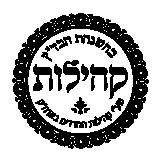


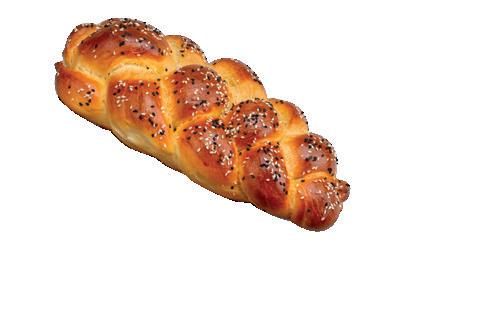
OU ISRAEL CENTER 55 Have you been meaning to get rid of that old hat lying in your closet? Trade-in your old hat and get a discount on any new hat you purchase at SherlockS. We’ll clean your old hat and bring it to clothing centers where new immigrants and less fortunate people are looking for clothes. Needs Them Dorot Rishonim 3, Jerusalem • Tel: 02 563-7155 • www.SherlockSHats.com P.S. Tilley Hats Have Arrived! Old Hats! Who Needs Them? Help someone get nachas from your old hat. While you get nachas from your new SherlockS hat. Shabbos Bistro Premium delicious shabbes meals Openning hours: Thursday 12 pm-2 am Friday 8 am-3 pm 02-9964469 | 054-8777347 Iben Shafrut 5, Rehavia, Jerusalem
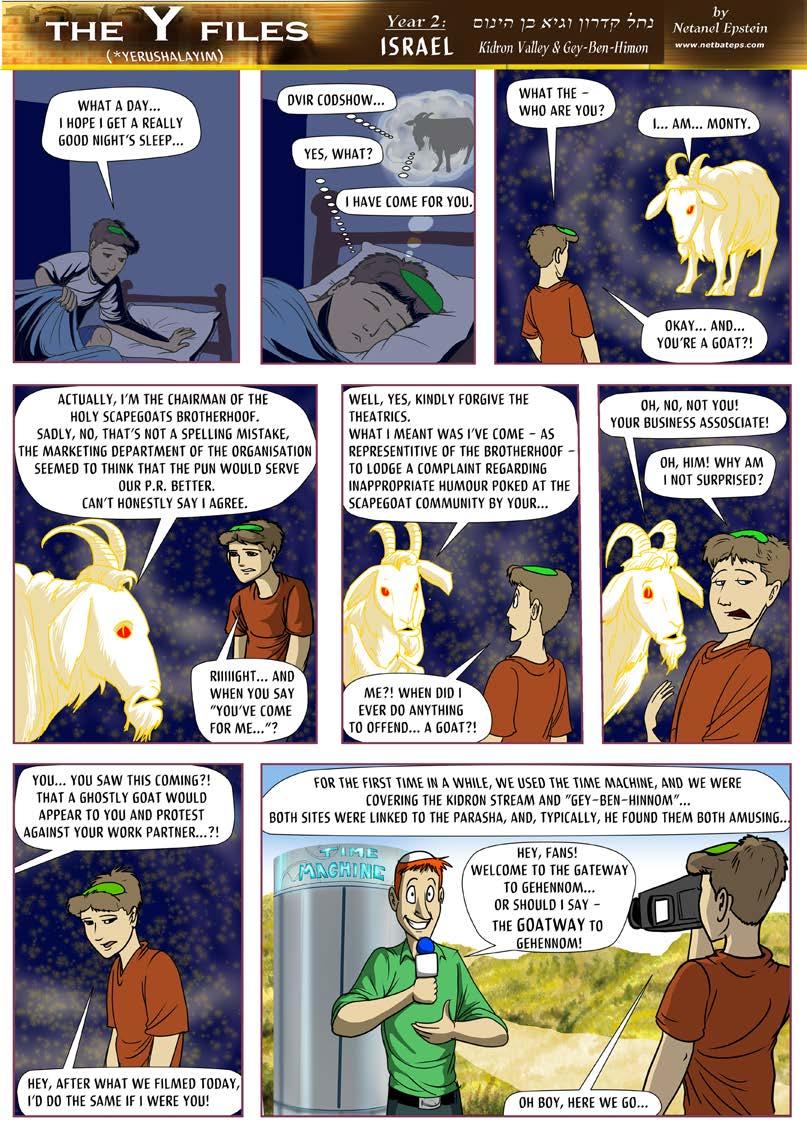
56 TORAH TIDBITS 1513 / ACHAREI MOT - KEDOSHIM
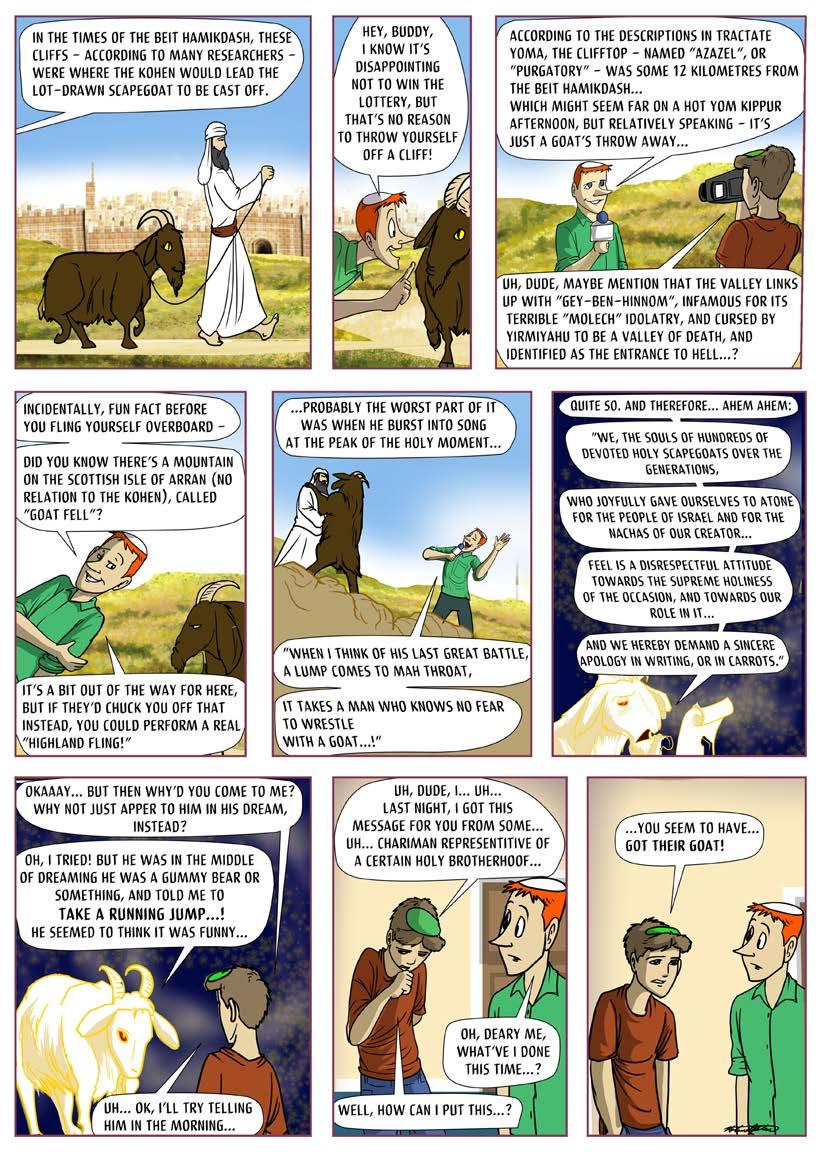
OU ISRAEL CENTER 57
Tzvi Silver Hometown: Teaneck NJ Community: Givat Shmuel
The end of this week’s sedra discusses forbidden relationships. The section with “Speak to all of the Jewish people, and tell them: I am G-d. Do not act like those in Egypt, where you lived, and do not act like those in Canaan where I am bringing you, and do not follow their laws. You shall follow my laws and keep my rules to follow them, I am G-d.”

(Vayikra 18:1-4)
We see an unusual repetition here, the book-ends of “I am G-d,” surrounded by the even stranger warning of not emulating the Canaanites. They seem almost contradictorylater in the Torah, it’s written that G-d took us out of Egypt to bring us to the Land of Israel to be our G-d, “I am G-d” (Bemidbar 15). Yet here, it almost seems as if coming to the Land of Israel would expose us to the corruption and immorality of the locals, which, as we see later on in the perek, are very problematic even by today’s much lower standards- why would G-d even lead us to the Land of Israel and risk our spiritual and moral standing?
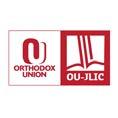
We can answer this by identifying as the newly formerly Egyptian Jews. Even though the Land of Egypt was far from a moral society, generations of Jews flourished there, thanks to the spiritual foundations and leadership of Yosef, Yehuda, Levi and
others. Even centuries of backbreaking slavery didn’t break their spirit and connection, because of their mesorah and because of G-d’s promise to be with them and of the Exodus. The thought of leaving that settled existence behind for another, equally if less moral settlement, must have been very scary.
While contemplating this transition, G-d reminds the Jewish people of what we read: “Go to the Land of Israel, follow the laws of morality brought forth here, and I will be your G-d and you will remain holy.” As is later taught in the Babylonian Talmud quoting the same phrase, “For anyone who lives in Eretz Yisrael is like he has a G-d, and anyone who lives outside of Israel is as if he has no G-d, for it says ‘To give you Eretz Canaan, to be a G-d for you’” (Ketubot 13b). Better to be in the Promised Land, with its spiritual corruption yet with G-d and immoral surroundings, than anywhere else, even with perceived higher spirituality, without Him.
As we celebrate Yom Ha’atzma’ut this week and commemorate 75 years of Medinat Yisrael, we have a lot to be thankful for. Unlike the Jews of the Exodus, previous generations have settled the Land and prepared the spiritual groundwork for our G-d-fearing existence here. While many of our brethren still live elsewhere, including many religious leaders, it is no longer a contradiction to live in Israel and be G-d fearing, something which directly affected our decisions to move
58 TORAH TIDBITS 1513 / ACHAREI MOT - KEDOSHIM
OU-JLIC
Orthodox Union Heshe and Harriet Seif Jewish Learning Initiative on Campus
our lives here.
Let us thank G-d for our mesorah, our morals and our connection to our Promised Land- may we merit the complete redemption very, very soon!
The OU’s Jewish Learning Initiative on Campus (JLIC) is creating and nurturing vibrant religious communities in Israel to support English-speaking college students and young professionals. JLIC Israel’s goals include: building a warm and welcoming Jewish community for students and young professionals; providing engaging and dynamic Jewish education; providing a supportive home environment for Olim; providing resources for personal and religious growth, including personal mentoring, Aliyah support, religious guidance and leadership development. Current JLIC programs in Israel include: Reichman University - Herzliya; Bar Ilan University - Givat Shmuel; Tel Aviv University; Tel Aviv for Young Professionals; and Jerusalem. Contact: Rabbi Jonathan Shulman, Director of OU-JLIC in Israel shulmanj@ou.org
Thanks to all who contributed to the needy for Pesach. It's never too late to perform a Chesed.
• Checks: Make out to “Yesh Ezra” Send to: Yesh Ezra, POB 31476, Romema, Jerusalem, 9136101

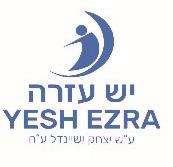
• Bank Transfer: Bank Mercantile (17), Branch 642, A/C 79747843, Yesh Ezra
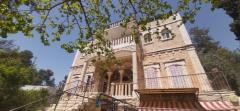
To obtain your tax benefit receipt, send details by Whatsapp/email.
• Credit card: Sara at 077-820-0196
Sunday, Monday, and Wednesday (10:15am - 2:45pm)
• Website: www.yeshezra.org Click on “Donate Now”
Inquiries: Menachem Persoff






050-570-1067


















menpmp@gmail.com

OU ISRAEL CENTER 59
Yom Ha “Atzmaut Sameach`75 Selection of investment and holiday Properties walk to beach Luxury 4 rooms with 2 balconies , sea views completely Redone Hurry! NETANYA NITZA BLVD BAT YAM PROJECTS Tel/WhatsApp IL +972 50 446 9515 | Office +972 2 568 6578 www.israel-properties.com | toviyah@israel-properties.com Selection of projects Close to the beach with sea views 4,5 Rooms and more NETANYA
Opportunity to acquire this priceless Property Contact us! JERUSALEM
High standard
room options large balconies in new area near Ahuza RANANA
and
ready now & later options To suite all Budgets
PROJECTS
G-COLONY
3,4,5
PROJECTS Selection of projects
properties
RBS AND NEVE SHAMIR
TORAH 4 TEENS
is reluctant to send Yishmael away and Yitzchak seeks reconciliation with Yishmael and seeks to bless Esav.
BY TEENS NCSY ISRAEL


Shimmy Goldsmith Raanana Chapter Director
We Will All Be Holy
Parshat Kedoshim begins with powerful words: Hashem told Moshe to command Bnei Yisrael - “ויהת םישודק” . This phrase is often mistranslated as “you must be holy,” when in fact it literally means “you will be holy.”
Rabbi Hezkel Shraga explains that these words are not only a command, but also a promise to the people of Israel. No matter where they are, what they are doing, or how far they may have strayed, God promises that they will ultimately return and be holy. This promise is rooted in the fact that every Jew is inherently holy, with the potential to uncover that holiness through teshuva. While we may not always feel holy when we look at ourselves, we know that God has promised us that we are holy and can access that holiness whenever we choose to do so. These words were said in Hakel, in the presence of all of Bnei Yisrael. But why did all of Bnei Yisrael have to hear these words? Moshe could have spoken to some of Bnei Yisrael and they could have taught the others. Why did all of Bnei Yisrael have to hear these words together? Rashi says, based on the midrash:
הב םייולת הרות יפוג בורש ינפמ -since so many fundamental teachings of the Torah are dependent on it. What does that mean?

6th Aliya (25:1-11) Avraham marries Keturah; they have 6 sons. All that Avraham has goes to Yitzchak; these are sent eastward with gifts. Avraham dies at age 175; he is buried by Yitzchak and Yishmael in Ma’arat Hamachpelah. Yitzchak is blessed by G-d: he lives in Beer L’chai Roi. The transition from Avraham to Yitzchak is complete. While G-d has been a silent partner in this parsha, here He completes the generational transfer – He blesses Yitzchak. The Jewish people will be Yitzchak and not Yishmael.
Perhaps one can suggest that so much of the Torah is based on us knowing and internalizing the fact that we are all holy, that you are not the only person around who’s holy. I’m not the only person who knows how to serve God. We are ‘Behakhel’. We are all holy, each one of us. People who act like me, and people who don’t act like me. People who dress like me ,and people who don’t dress like me, etcetera, etcetera. הרות יפוג בור הב םייולת – most of the Torah is based on this understanding.
7th Aliya (25:12-18) The generations of Yishmael are enumerated. Yishmael dies. His descendants dwell from Egypt to Assyria. Yishmael’s story is brief. He has numerous and powerful offspring. The brevity
Raphael Roshwalb 11th grade, Raanana Spiritual Spending
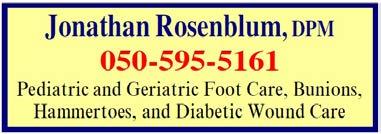

A SHORT VORT
There is a very interesting question that the Gemara (Yoma 62a) seems to gloss over. the he- goat for Azazel, which was to be thrown over the cliff, and the one offered in the Beit Hamikdash to Hashem were (preferably) to be identical in color, height, and value.
Jewish length. echoes tions woman and began father’s that his icant the
BY RABBI Rav, Beit Knesset
When Avraham addresses the people of Cheit, trying to “Ger V’Toshav Anochi Eimachem” (23:4) “A Stranger and This seems to be a contradiction. If one is a stranger than is no longer a stranger. What did Avraham mean?
The Magid of Dubno (Jacob ben Wolf Kranz 1741-1804) this tense situation in order to, both, state his truth and be said, on the one hand, “I am a Resident’ due to G-d’s promise need your agreement to purchase a plot. In other words, Avraham “strangers”, while they understood him as saying that “they” The peace was kept, and Avraham remained true to his Shabbat Shalom
Why should Jews have to spend extra sums of money on a he-goat that will anyhow be thrown over a cliff? The money we spend during our lifetime can be divided
60 TORAH TIDBITS 1513 / ACHAREI MOT - KEDOSHIM
ינש חקי לארשי ינב תדע תאמו“ ”תאטחל םיזע יריעש
12 TORAH TIDBITS 1440 / CHAYEI SARA 5782
is
interested the
into two parts. One part goes to spiritual matters such as tzedakah, mitzvot, and tuition, and the other to physical necessities and personal pleasures. Unfortunately, many people who are blessed with affluence spend freely on personal amenities yet plead poverty when it comes to spending money on spiritual matters. In retrospect, we often feel that money spent on pleasures has been wasted. However, money spent on the spiritual has an everlasting effect.

The two he-goats can also serve as metaphors for these above-mentioned two categories of expenses. And the instruction of our sages that they should be of equal value, conveys an important lesson.


Hashem requests that at least an equal amount of money be spent on spiritual matters. If one has money for “Azazeil” — to throw over the cliff — one should not
plead poverty when it comes to spending for Hashem. As a teenager, I think the lesson from the Gemara about the he-goats being of equal value is a reminder that we should prioritize spending, not just money but time on spiritual matters alongside personal pleasures. It’s important to find a balance and not neglect our spiritual responsibilities while indulging in material desires.

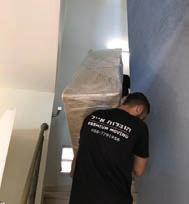 Shabbat Shalom
Shabbat Shalom

OU ISRAEL CENTER 61
Premiummoving.co.il 053-7272-815 PREMIUM MOVING & STORAGE ד"סב

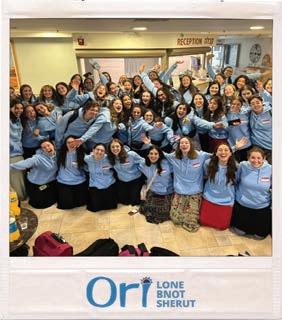


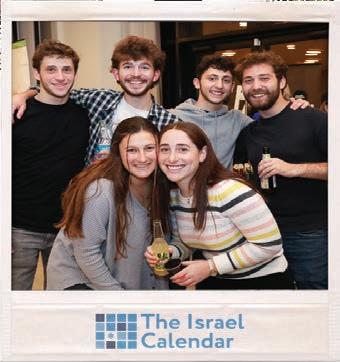
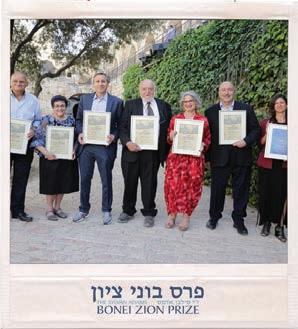
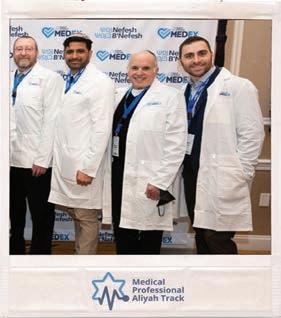
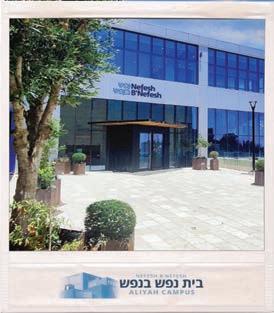

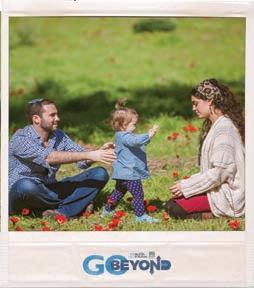


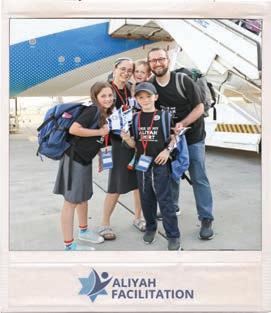

62 TORAH TIDBITS 1513 / ACHAREI MOT - KEDOSHIM Got Aliyah questions? We've got answers! *3680 answers@nbn.org.il FACILITATE • CELEBRATE • ADVOCATE • EDUCATE WORKING IN PARTNERSHIP TO BUILD A STRONGER ISRAEL THROUGH ALIYAH
TANACH YOM IYUN
"THE LAND OF ISRAEL IN TANACH" "THE LAND OF ISRAEL IN TANACH"

featuring:
Dr. Yael Ziegler
Rivers and Rain: Gan Eden and the Land of Israel
Dr. Yael Ziegler is Rosh Batei Midrash of Matan and a senior lecturer in Tanakh at Herzog College. She received her BA from Stern College and an MA and Ph.D. at Bar Ilan University. Dr. Ziegler has lectured widely on various Tanakh topics in Israel, the United States, South Africa, Australia, and Europe and has authored multiple books on Tanach.
Rabbi Chanoch Waxman
First Things First: The Ceremony of the Stones
An alumnus of Har Etzion, Rabbi Chanoch Waxman currently teaches at Yeshivat Har Etzion. He received Semikha from Yeshiva University and also holds an M.A. in Jewish Philosophy from Yeshiva University as well as an M.A. in General Philosophy from City University of New York. In Israel, Rabbi Waxman teaches at Yeshivat Har Etzion and has taught in many Midrashot and Yeshivot around the country. Rabbi Waxman is featured speaker and writer for Yeshivat Har Etzion’s Virtual Beit Midrash.
Rabbi Michael Hattin


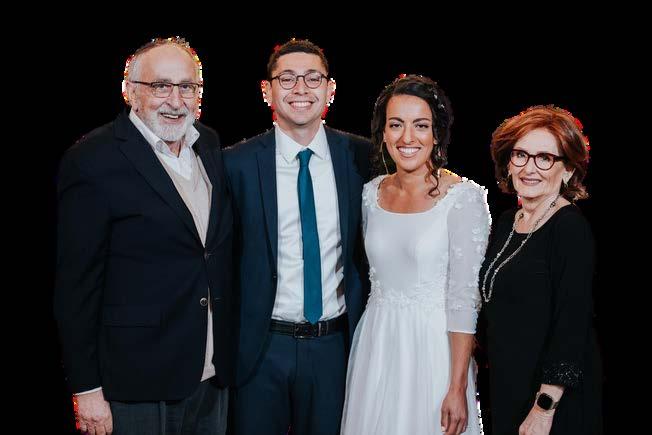
Jordan River is Deep and Wide: Overcoming the Past to Embrace the Future
An alumnus of Har Etzion, Rav Hattin teaches Tanakh and Halakha at the Pardes Institute of Jewish Studies in Jerusalem and serves as the Coordinator of the Beit Midrash for the Pardes Center for Jewish Educators. He studied for semicha at Yeshivat Har Etzion and holds a professional degree in architecture from the University of Toronto. Rabbi Hattin is the author of several books on Tanach.
SNAC
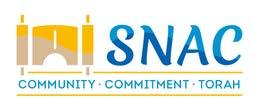
5 Kehillat Tzfat, Netanya
tinyurl.com/3xjc76r5

https://docs.google.com/forms/d/e/1FAIpQLSdm8DJal85lidrdICN7PLFzMSL1lhj_Dfcr2mmkAOyOkXKWvw/viewform?urp=gmail_link
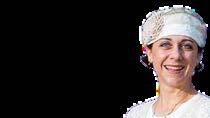
The Tom Weisz z"l Memorial Program
2023 9:00am Light Breakfast 9:30am-12:15pm Program Click Link to RSVP ל"ז לחר הקברו ןהכה םהרבא ןב ריאמ השמ תמשנ יוליעל OF YESHIVAT HAR ETZION
Tuesday, May 2,
VERY LAST ROOMS IN CERT AIN CATERGORIES OF ROOMS
in the Destiny Foundation’s

SHAVUOT RETREAT
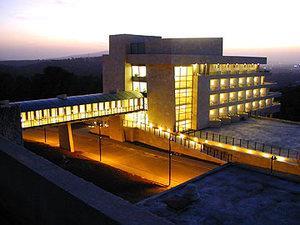
in the magnificent , most Koshe r (HashgachaMehadrinRabbanutGalilTachton,RabbiRubinMeat)
LAVI HOTEL
FEATURING
RABBI BEREL WEIN
as SCHOLAR IN RESIDENCE (& additional Rabbis’ lectures & Shiurim)
Five days and Four Nights, Wednesday, May 24 through Sunday, May 28
(Shavuot begins Thursday night)
PRIVATE DINING ROOM, BUFFET & FOR DESTINY GUESTS
Many L e cture s & Shiurim by Rabbi Wein
Full board throughout, outstanding cuisine of highest Kashrut Standard
All night English Shavuot Program with Rabbi Wein, Rabbis & refreshments
Total Torah atmosphere in the hotel, renowned Lavi hospitality
I ndoor Pool – Separate and Famil y hours

Optional Private Bus to and From Hotel (extra cost)
Optional Private tour on Thursday (extra cost)
Outstanding Jewish Films & Hollywood films will be shown
For registration forms , prices, and all questions , call Nachum Amsel at 0522-52-00-31 or write to nachum@jewishdestiny.com








































































































































































































































 Shabbat Shalom
Shabbat Shalom























